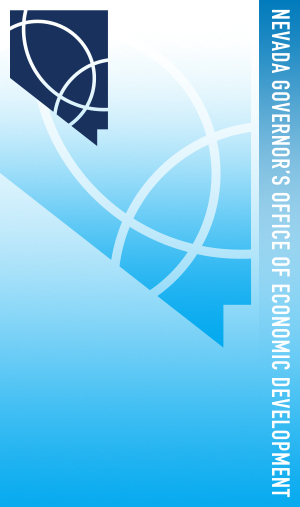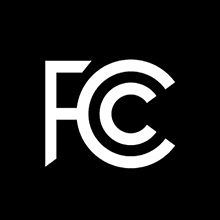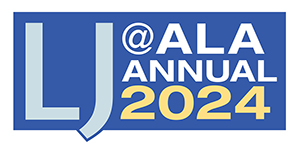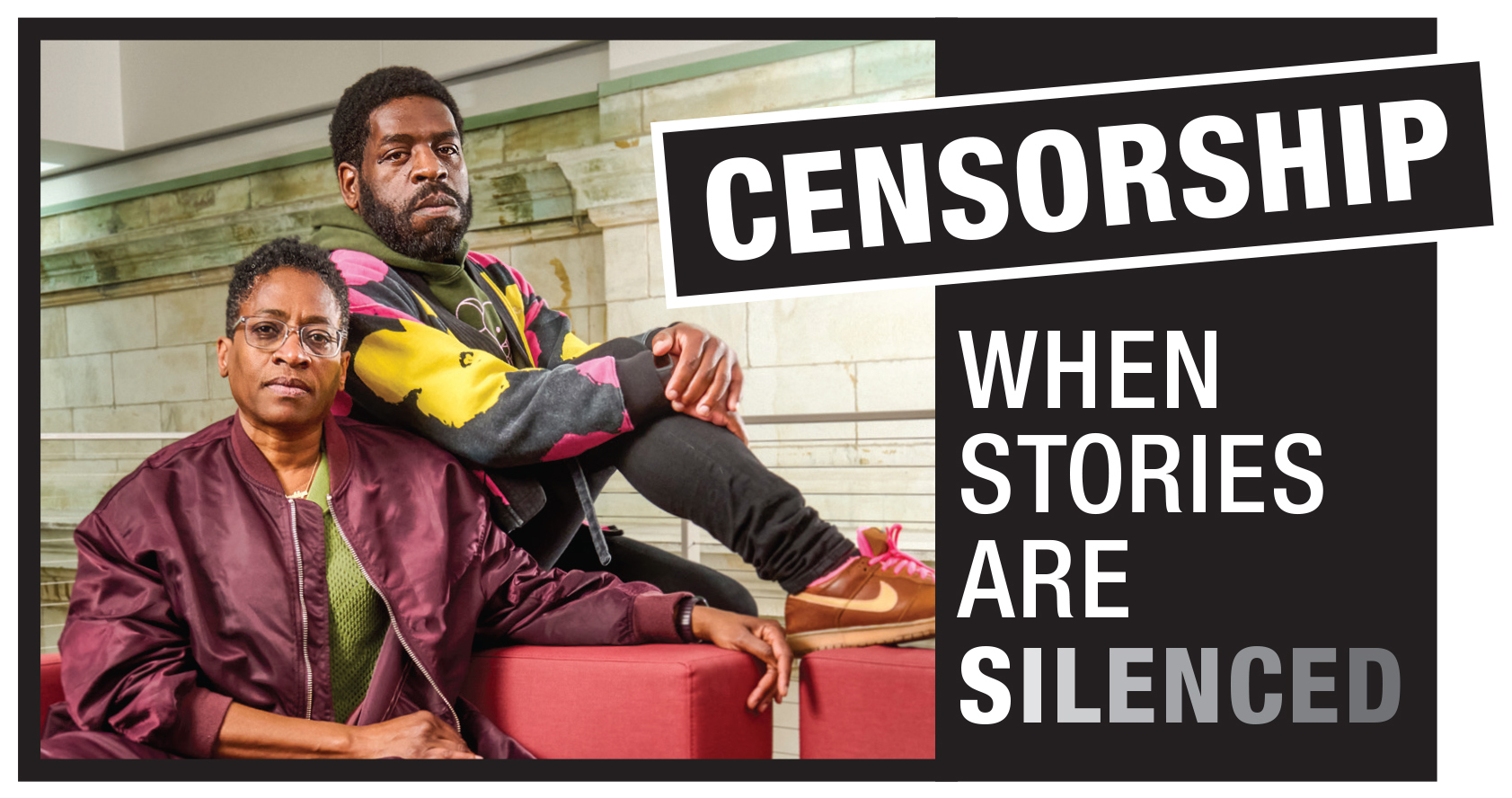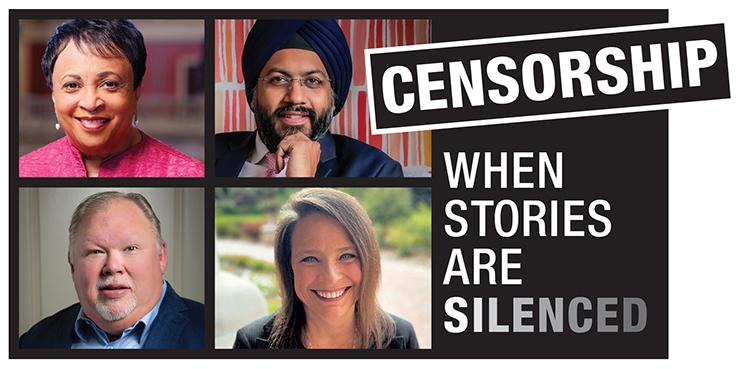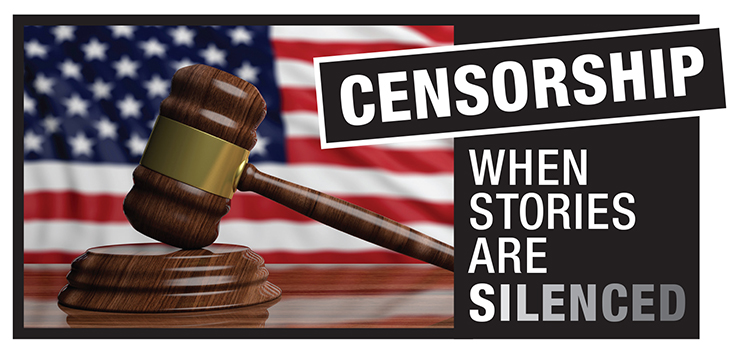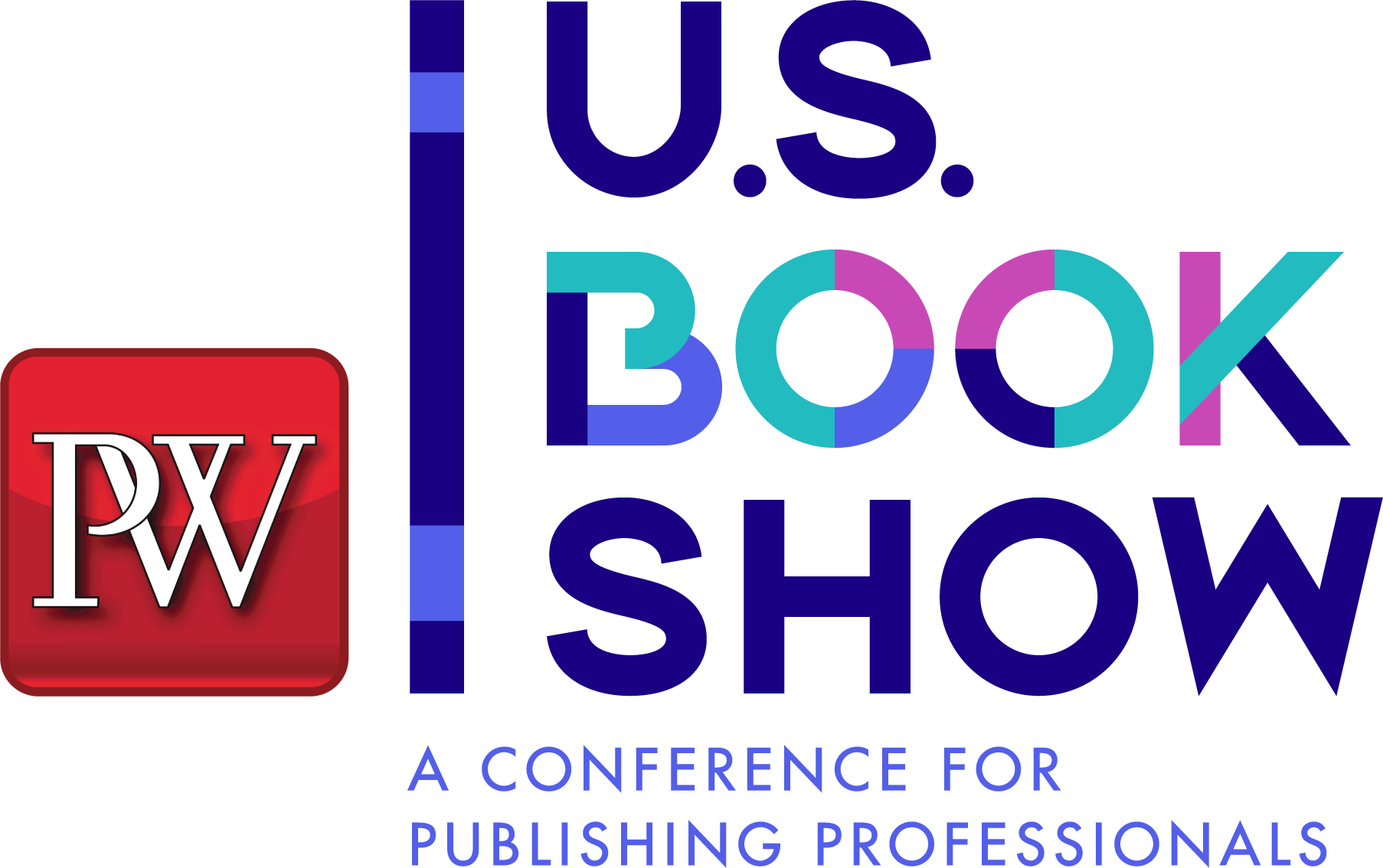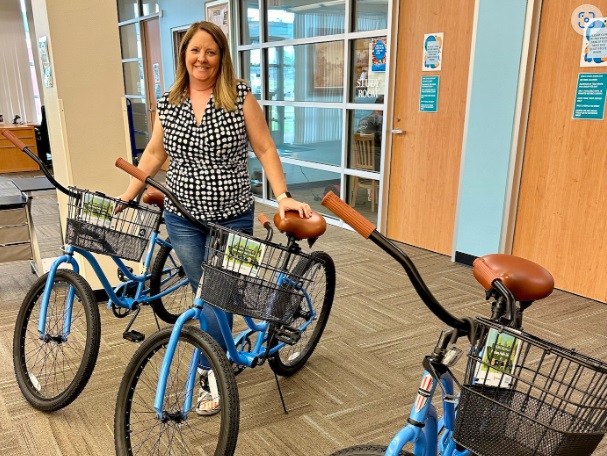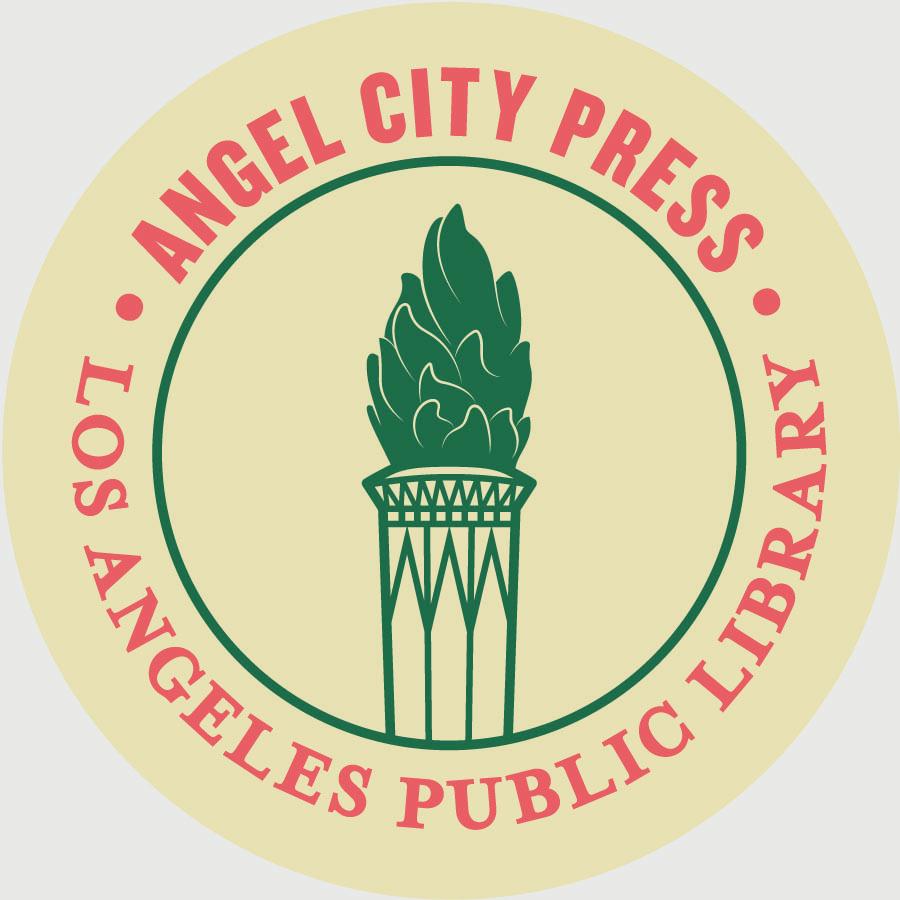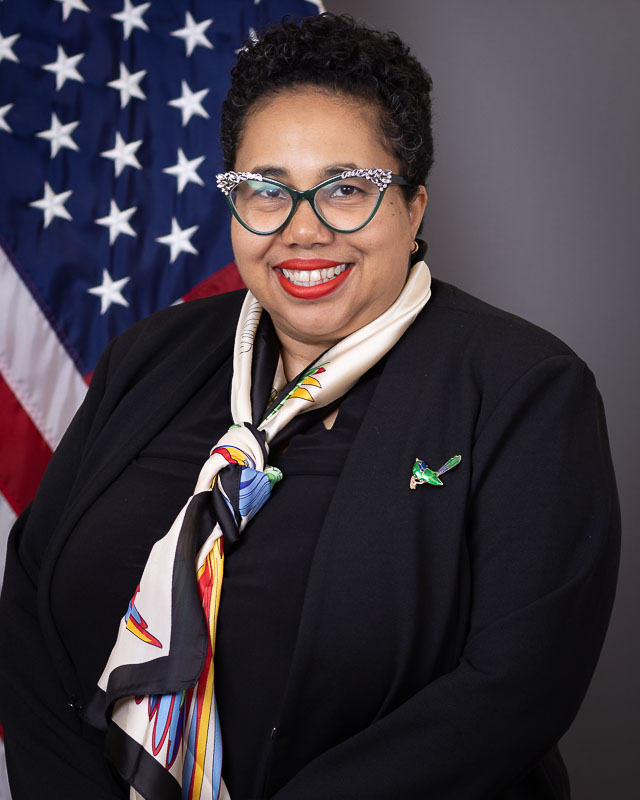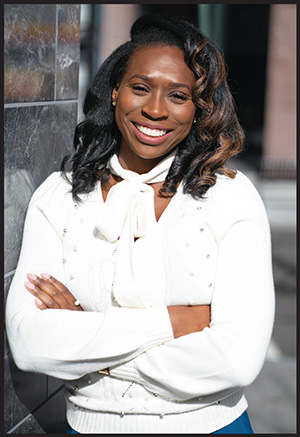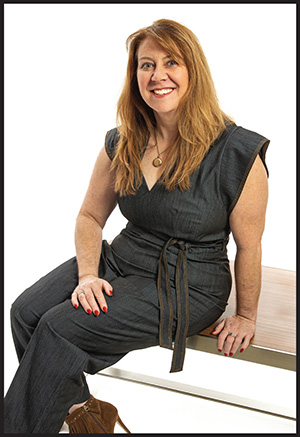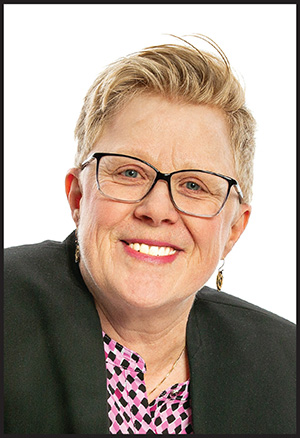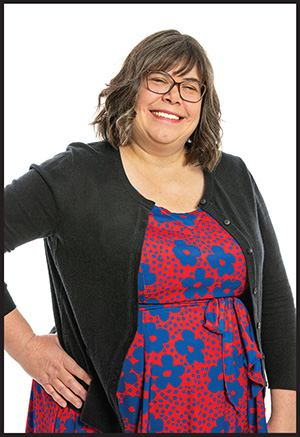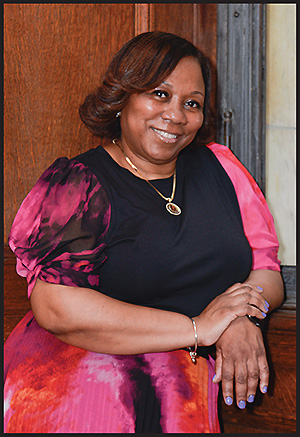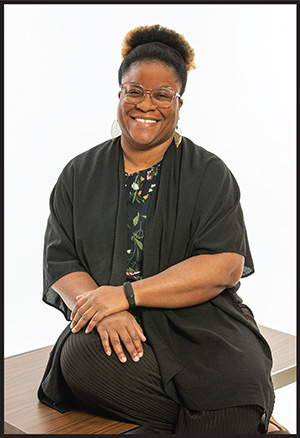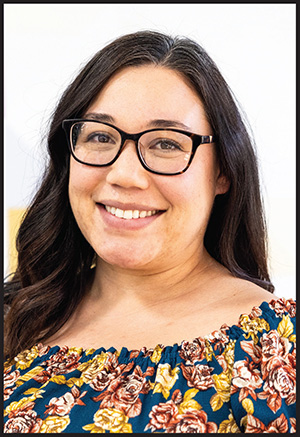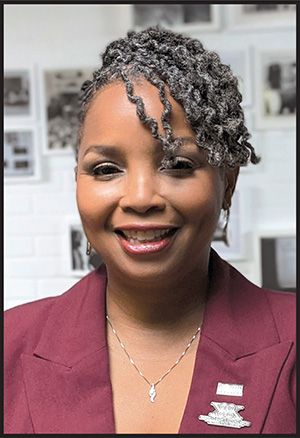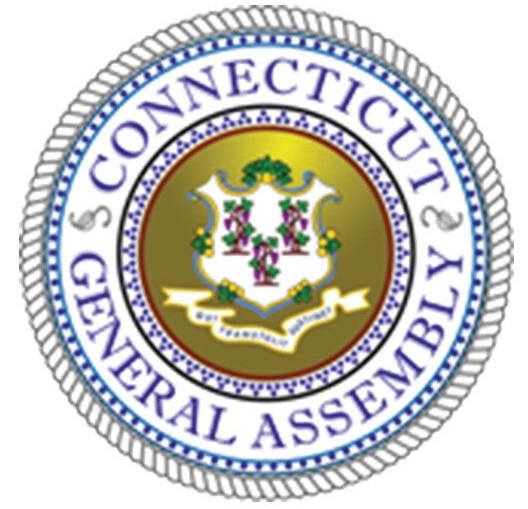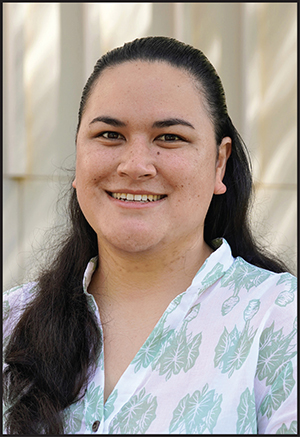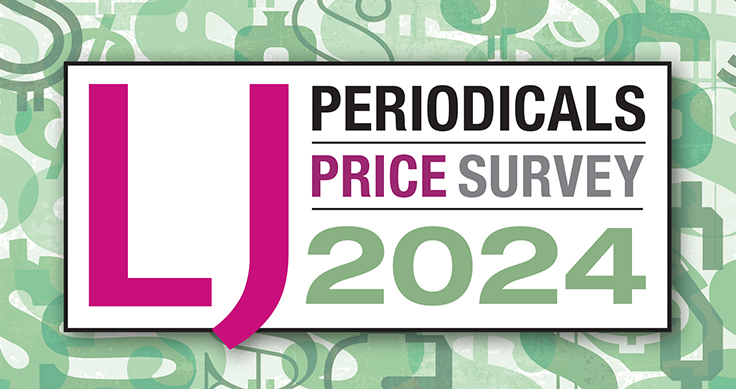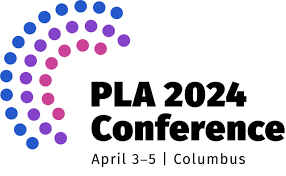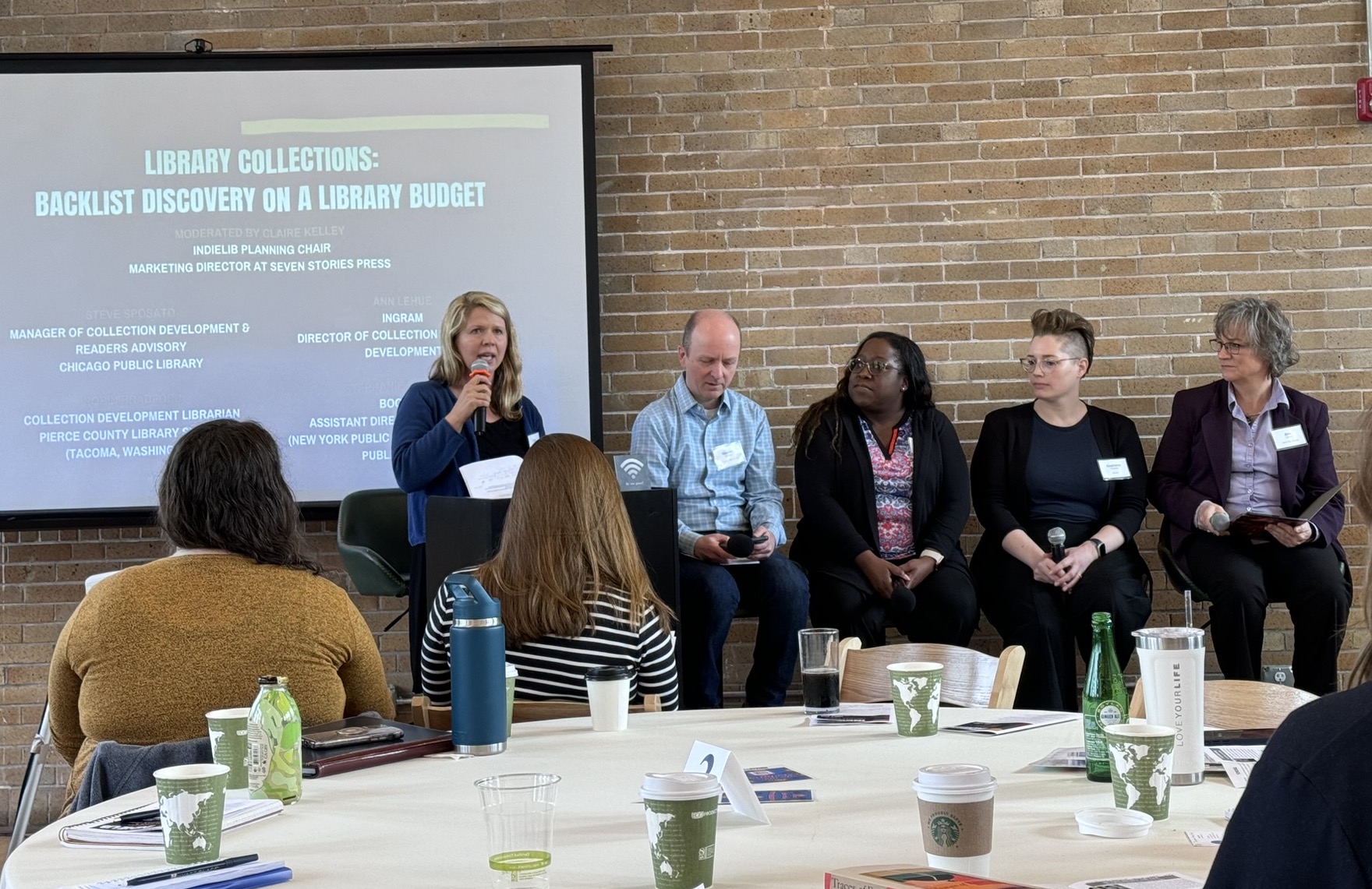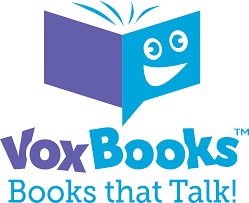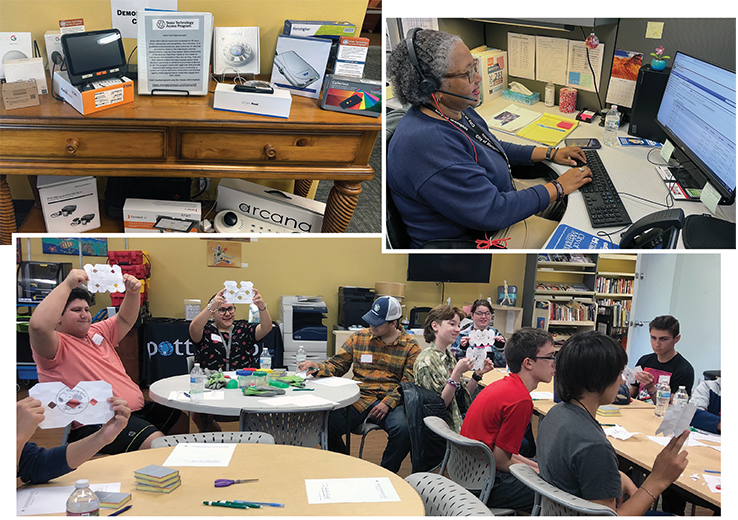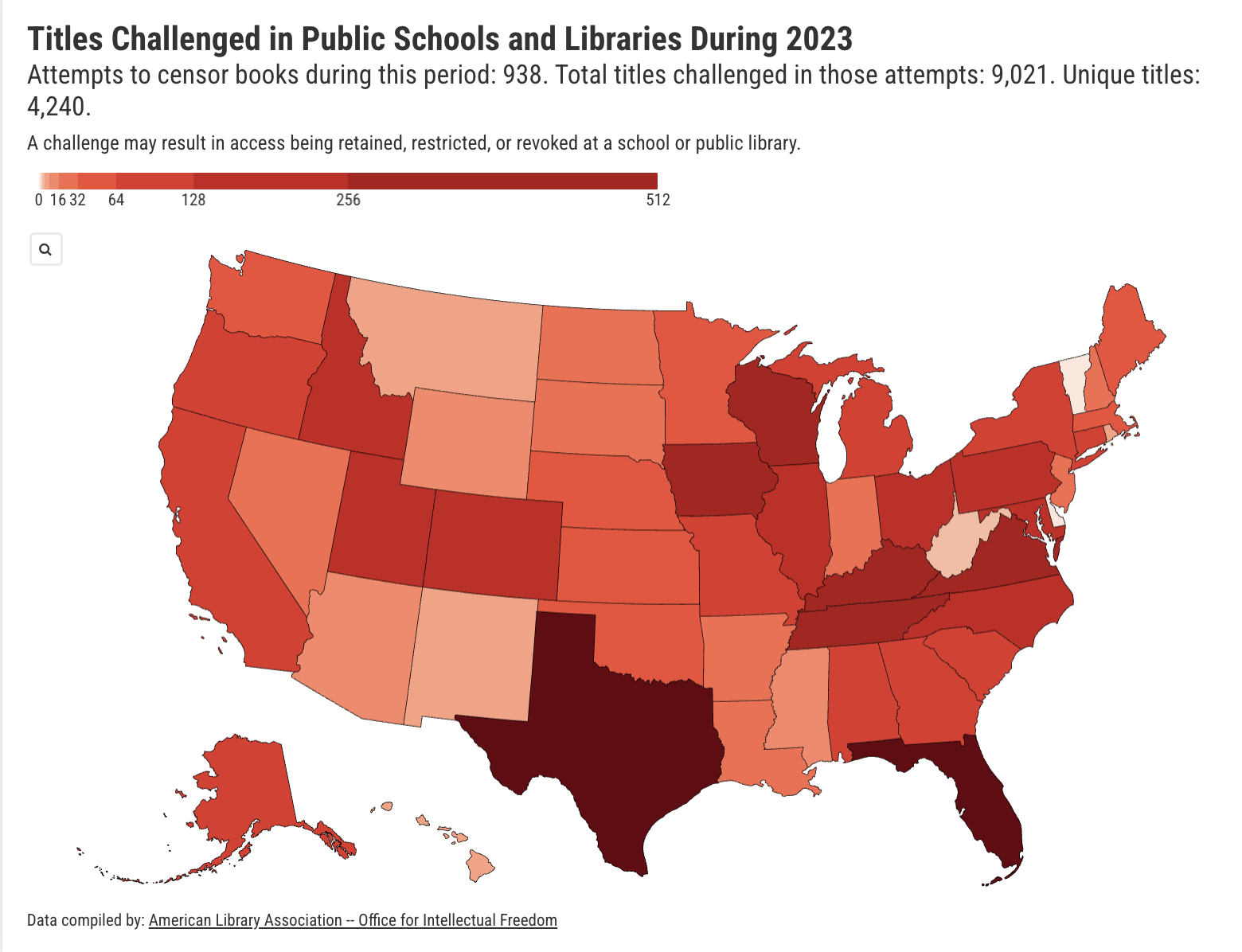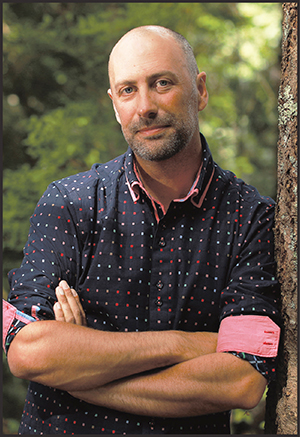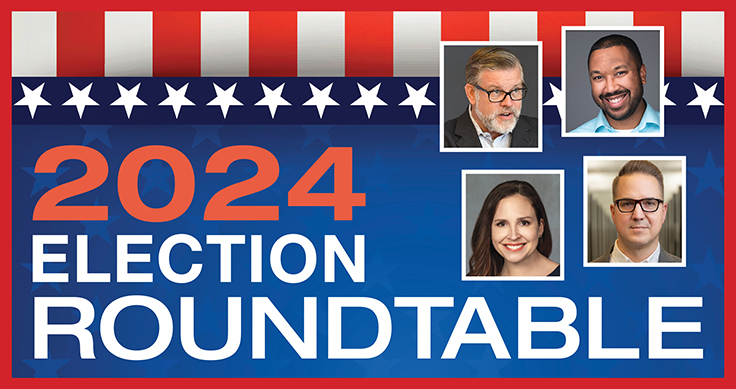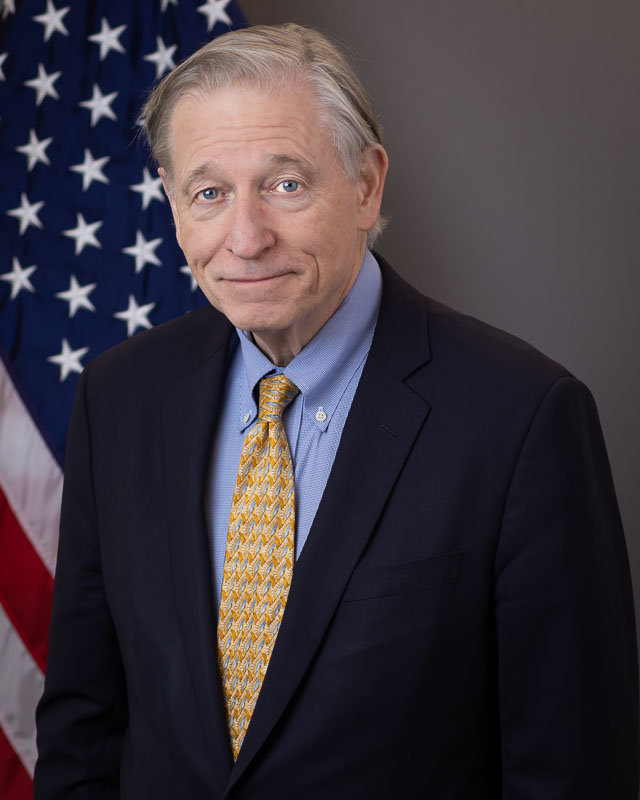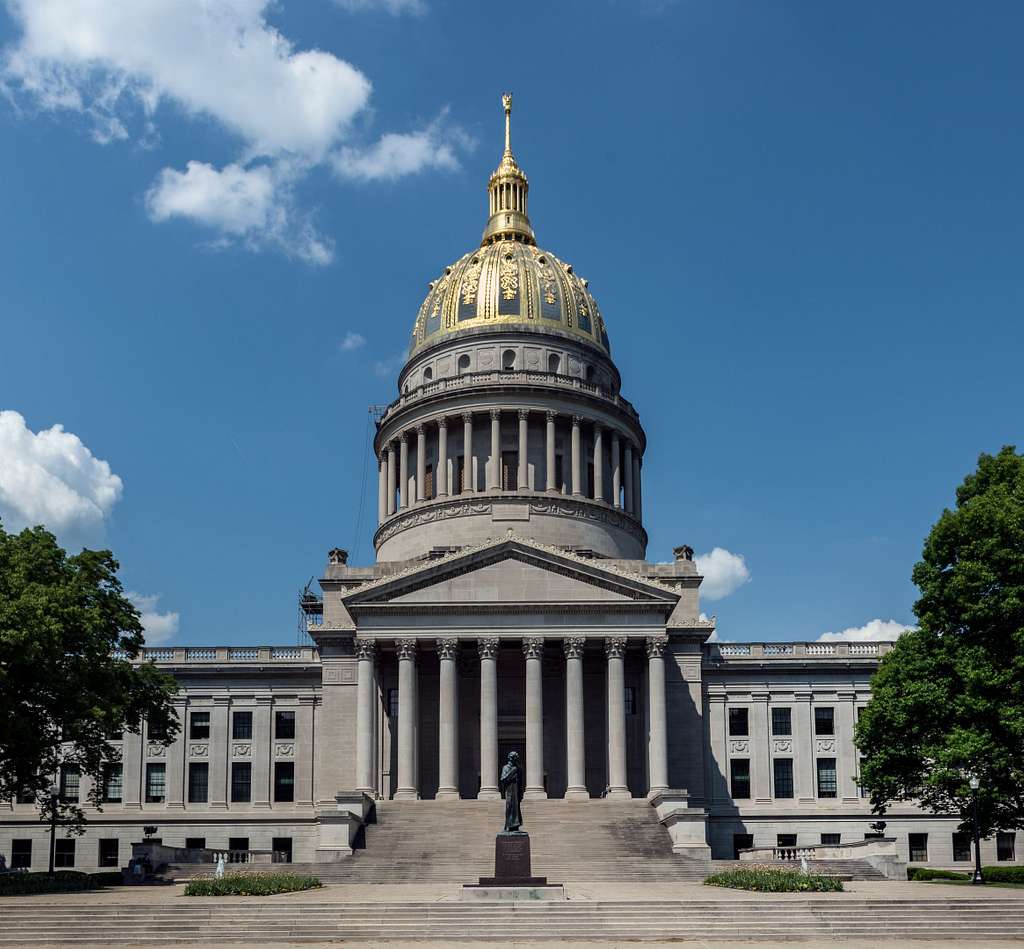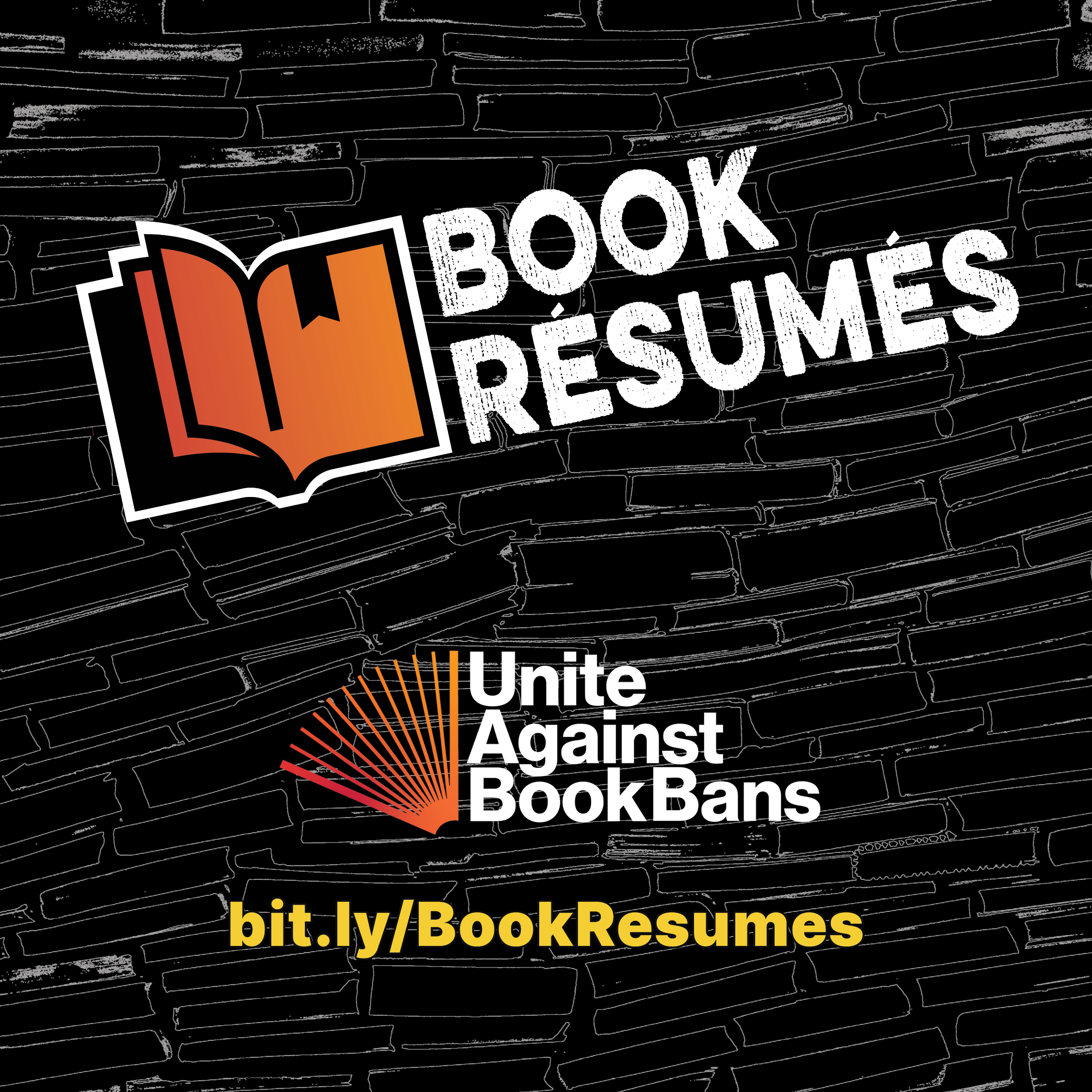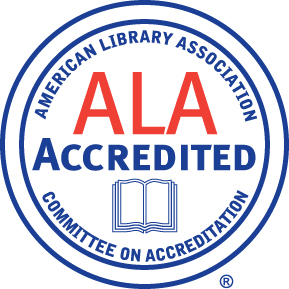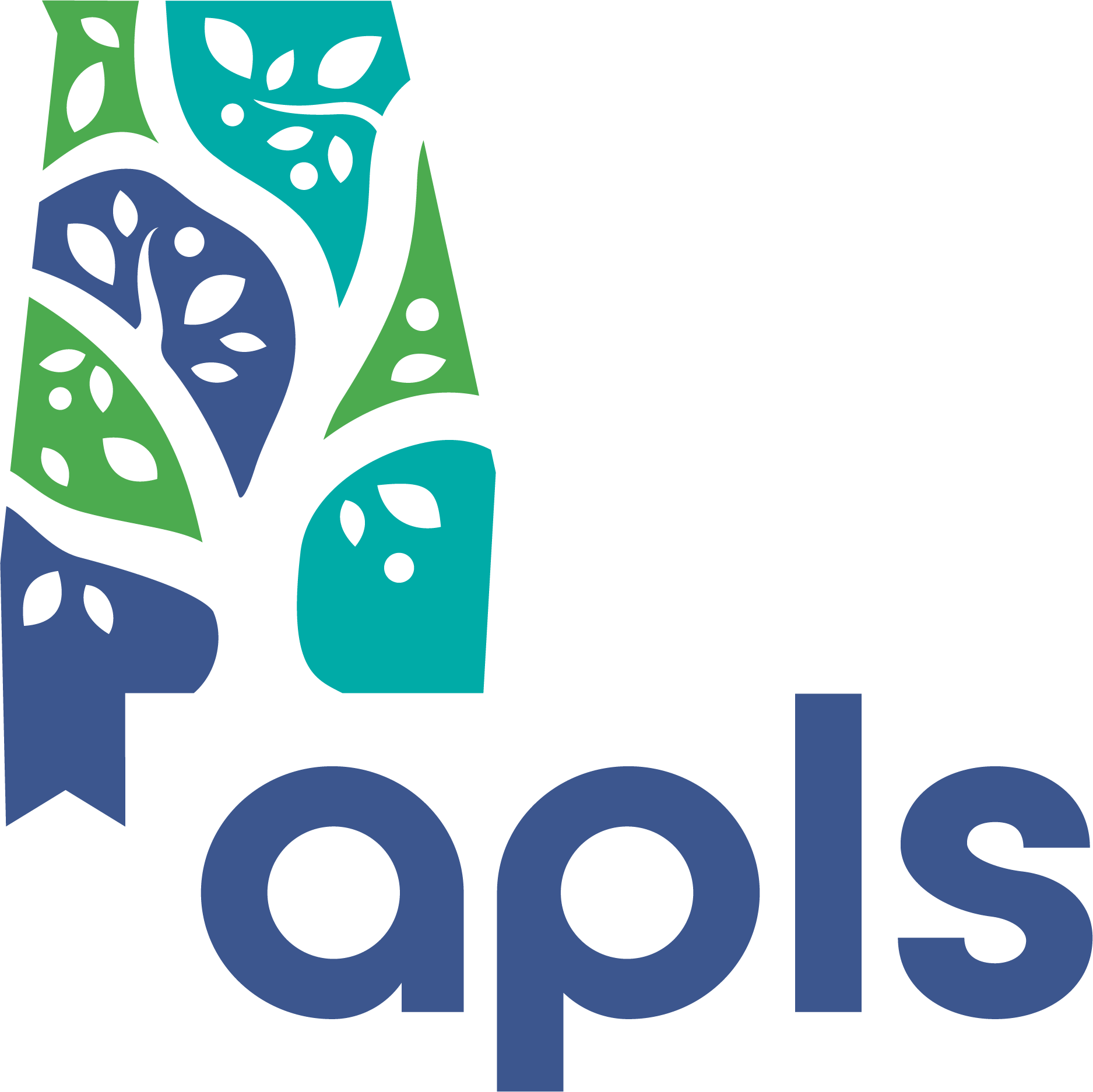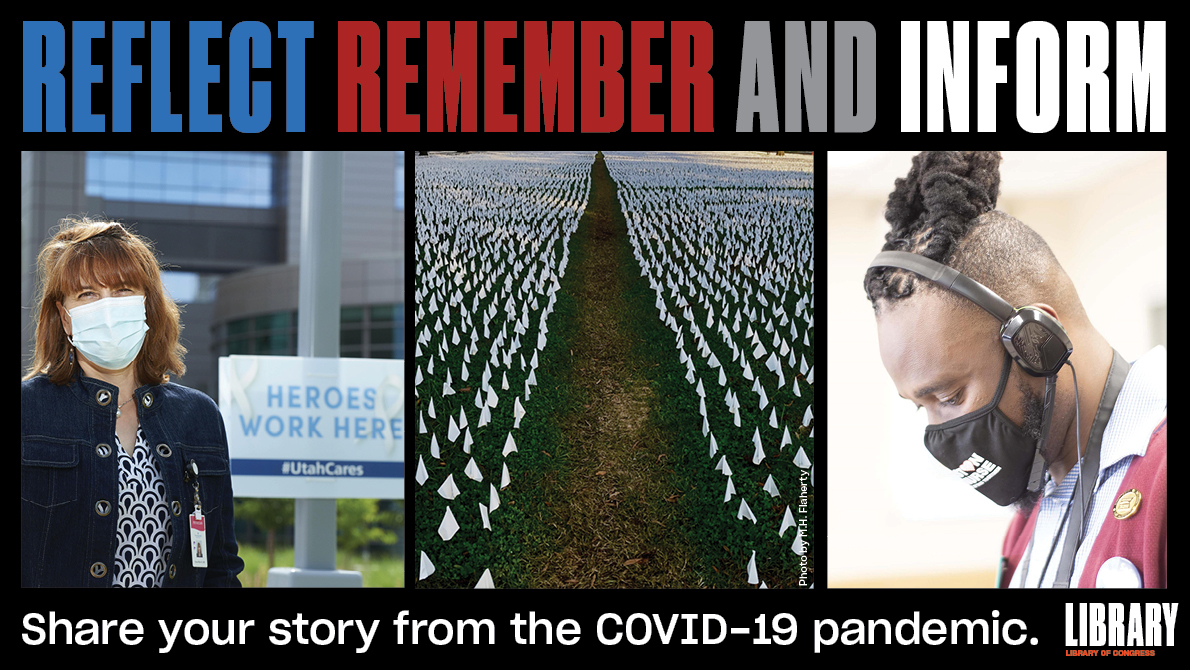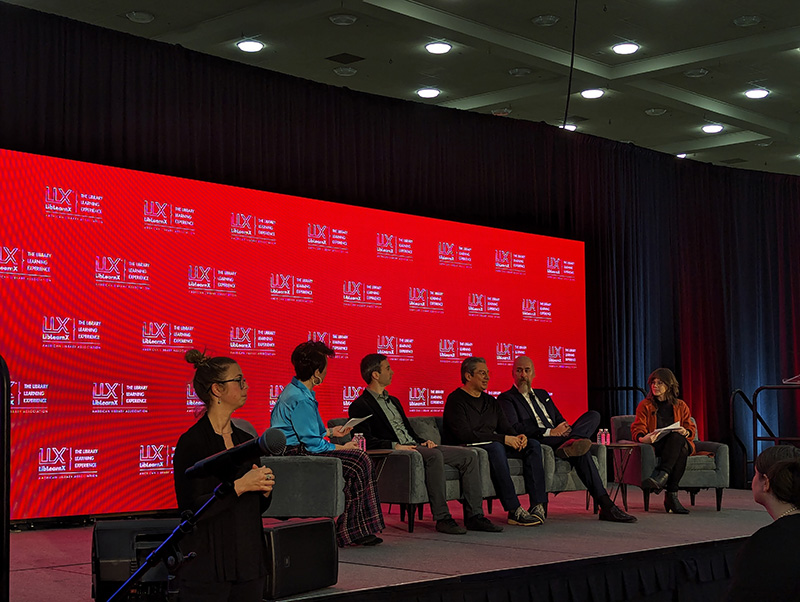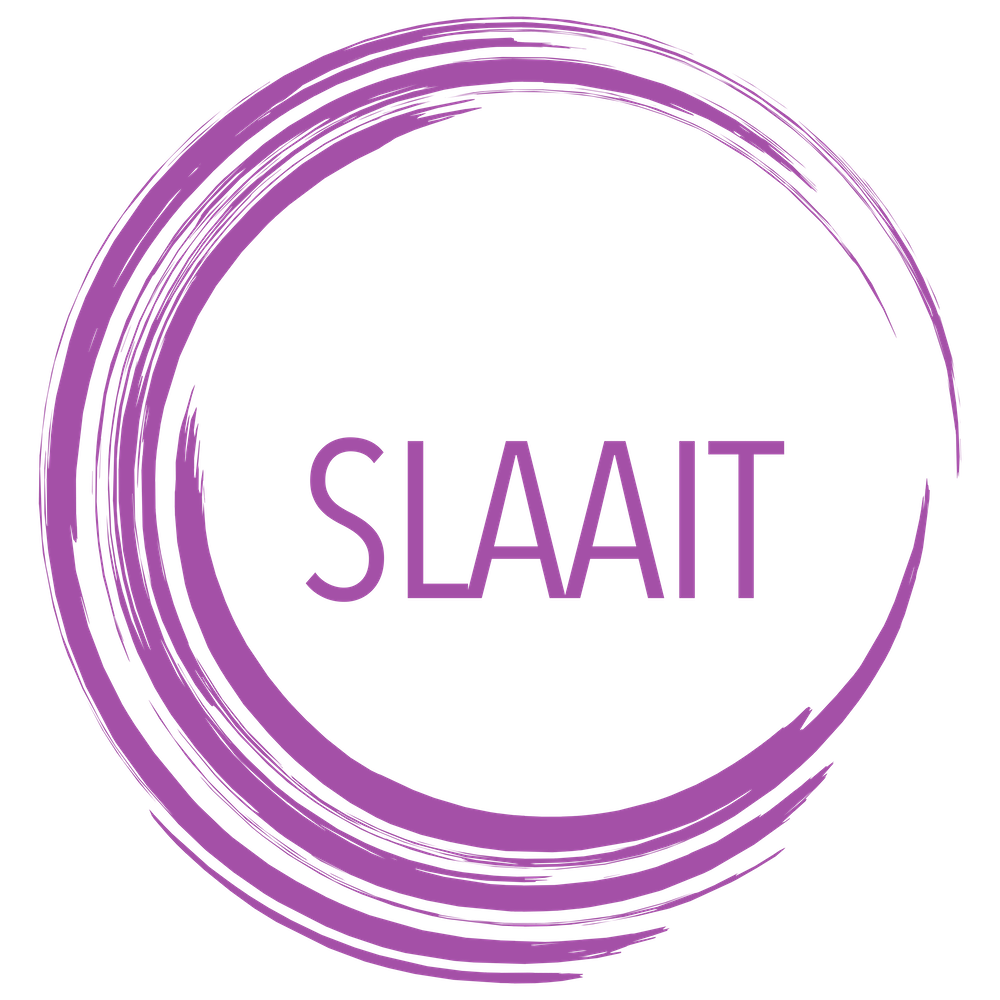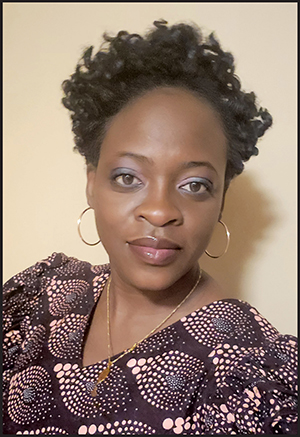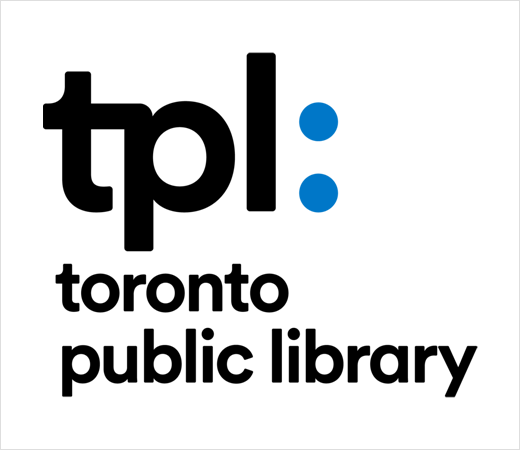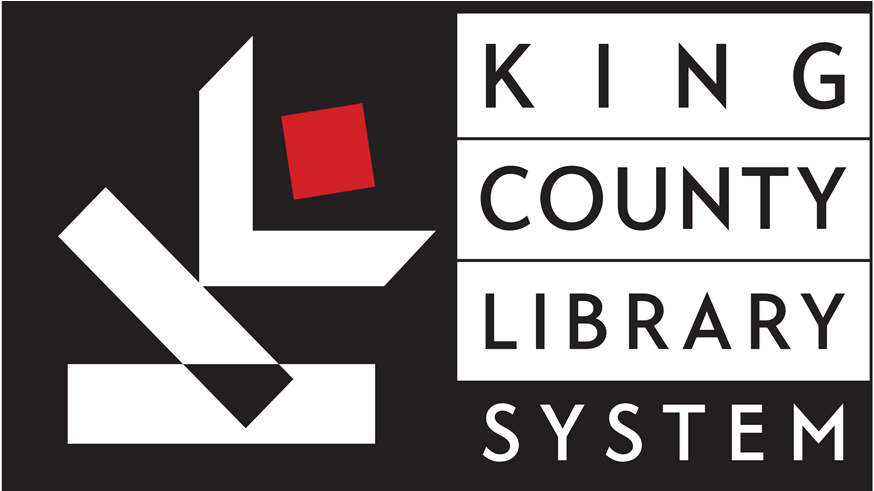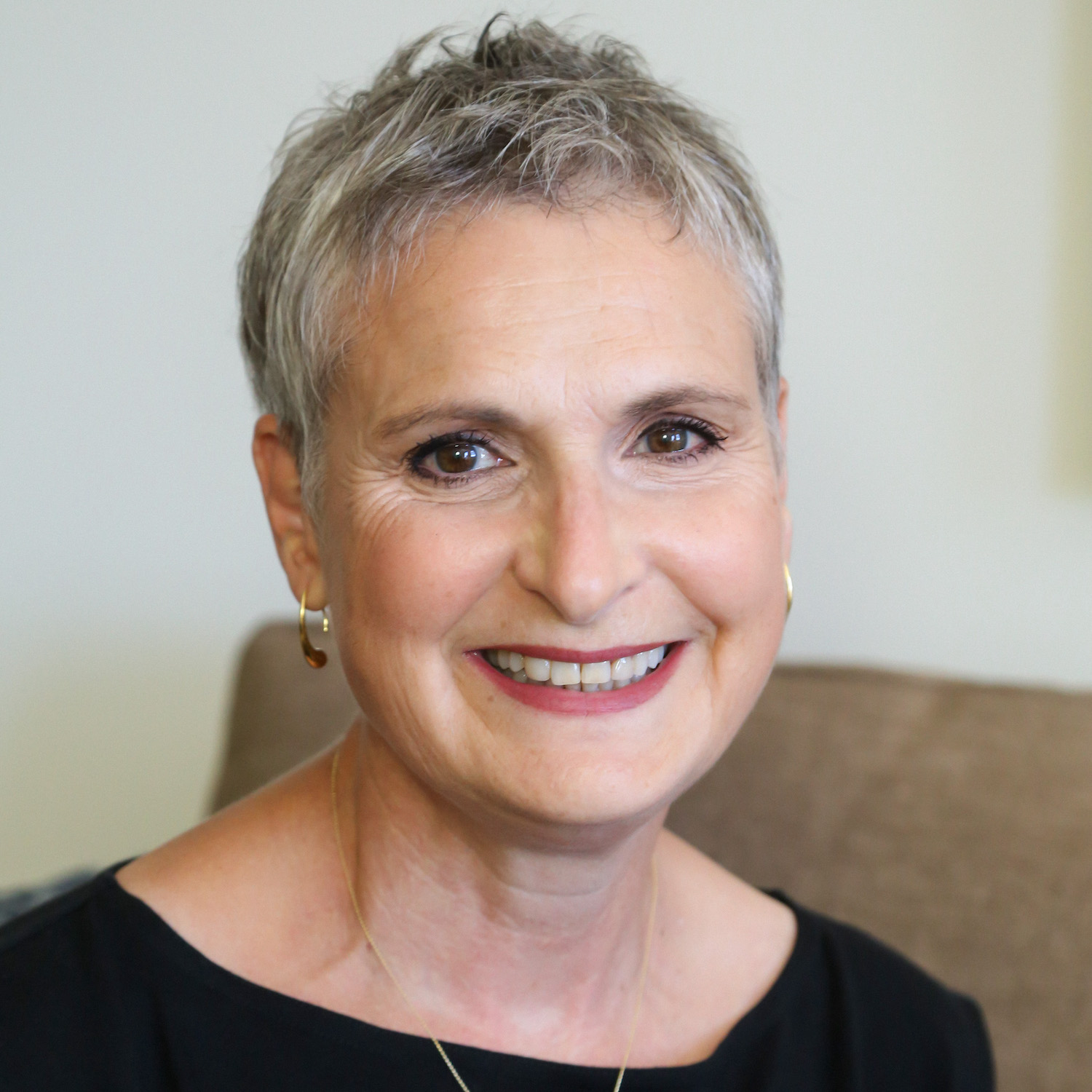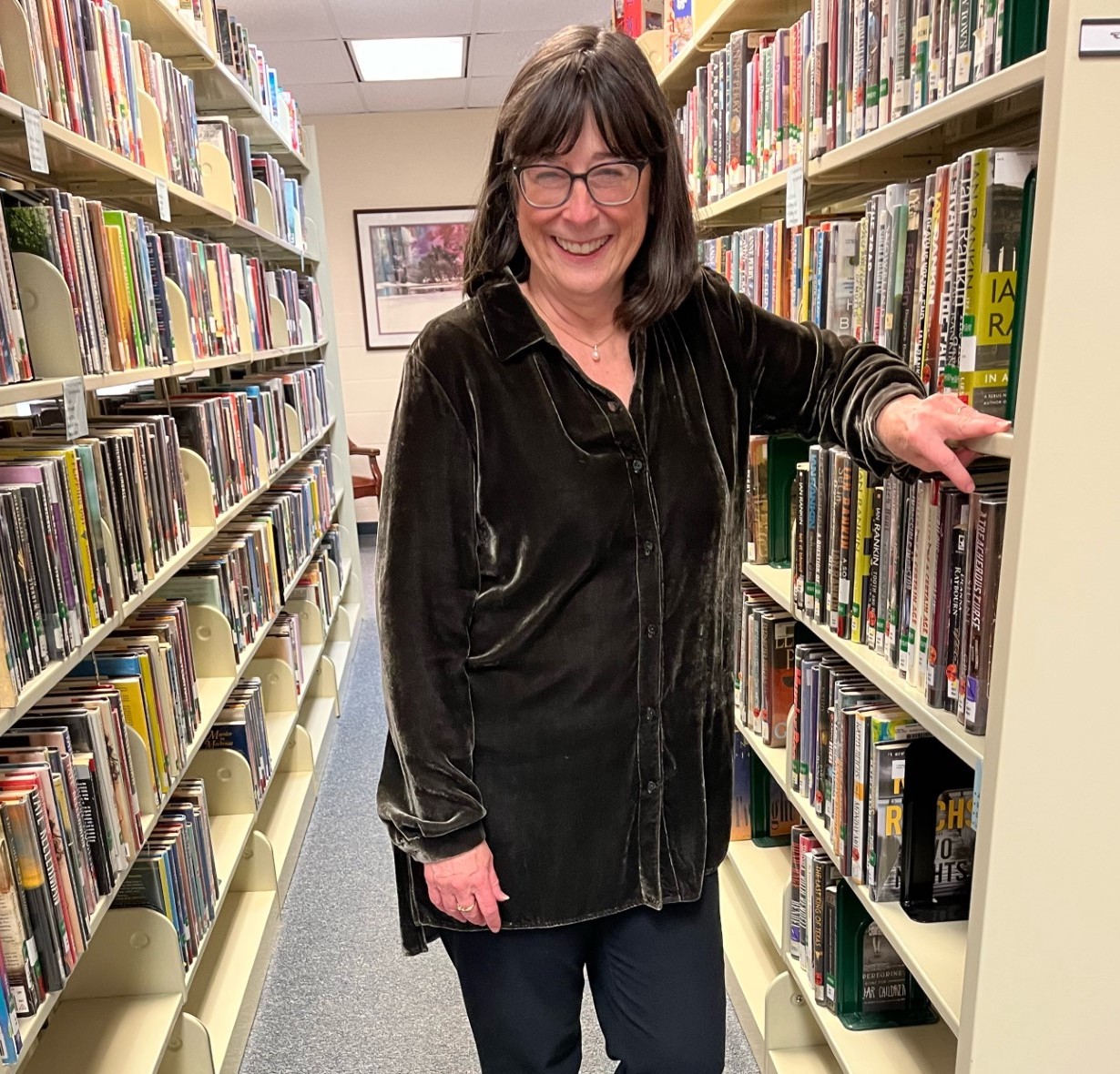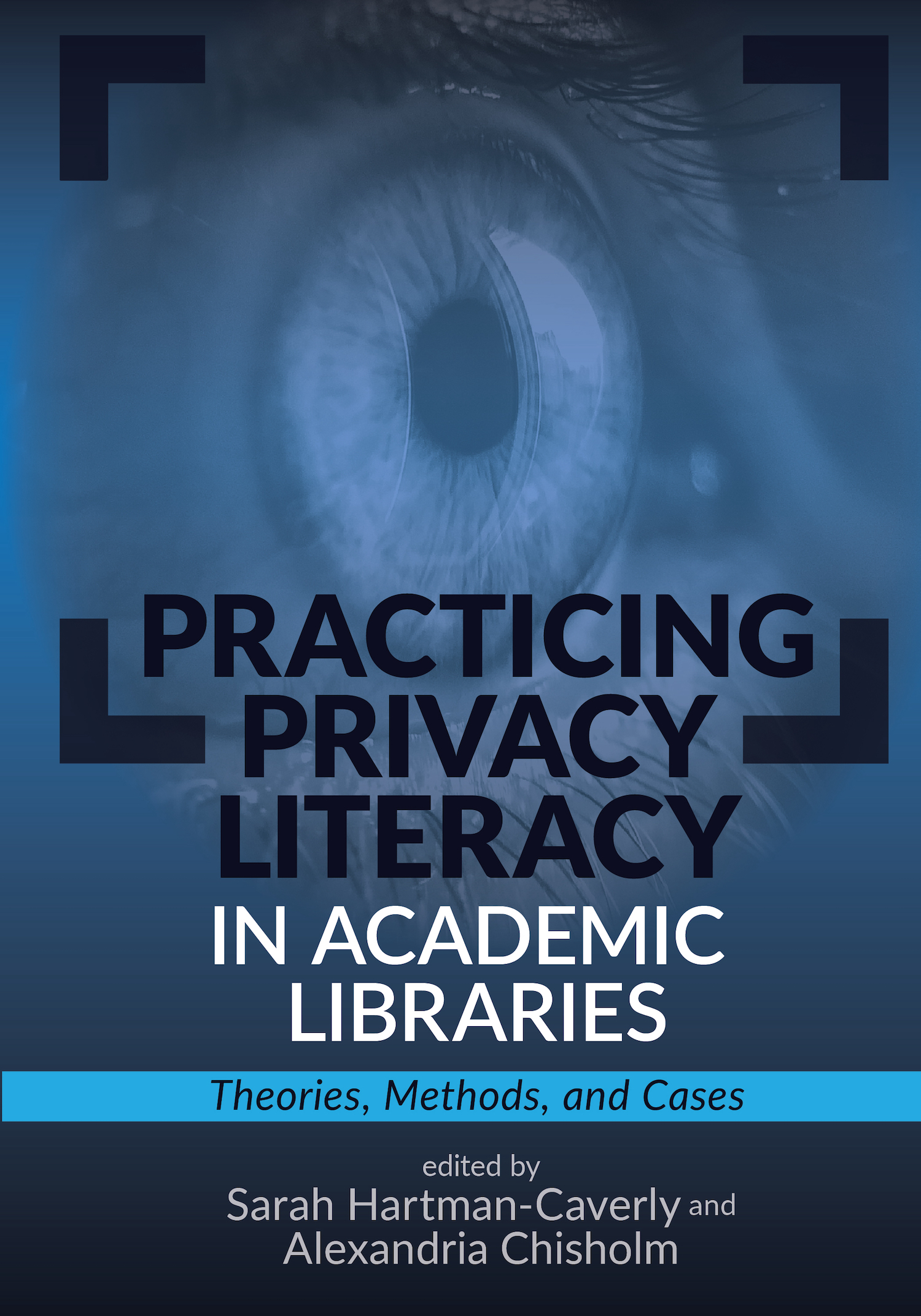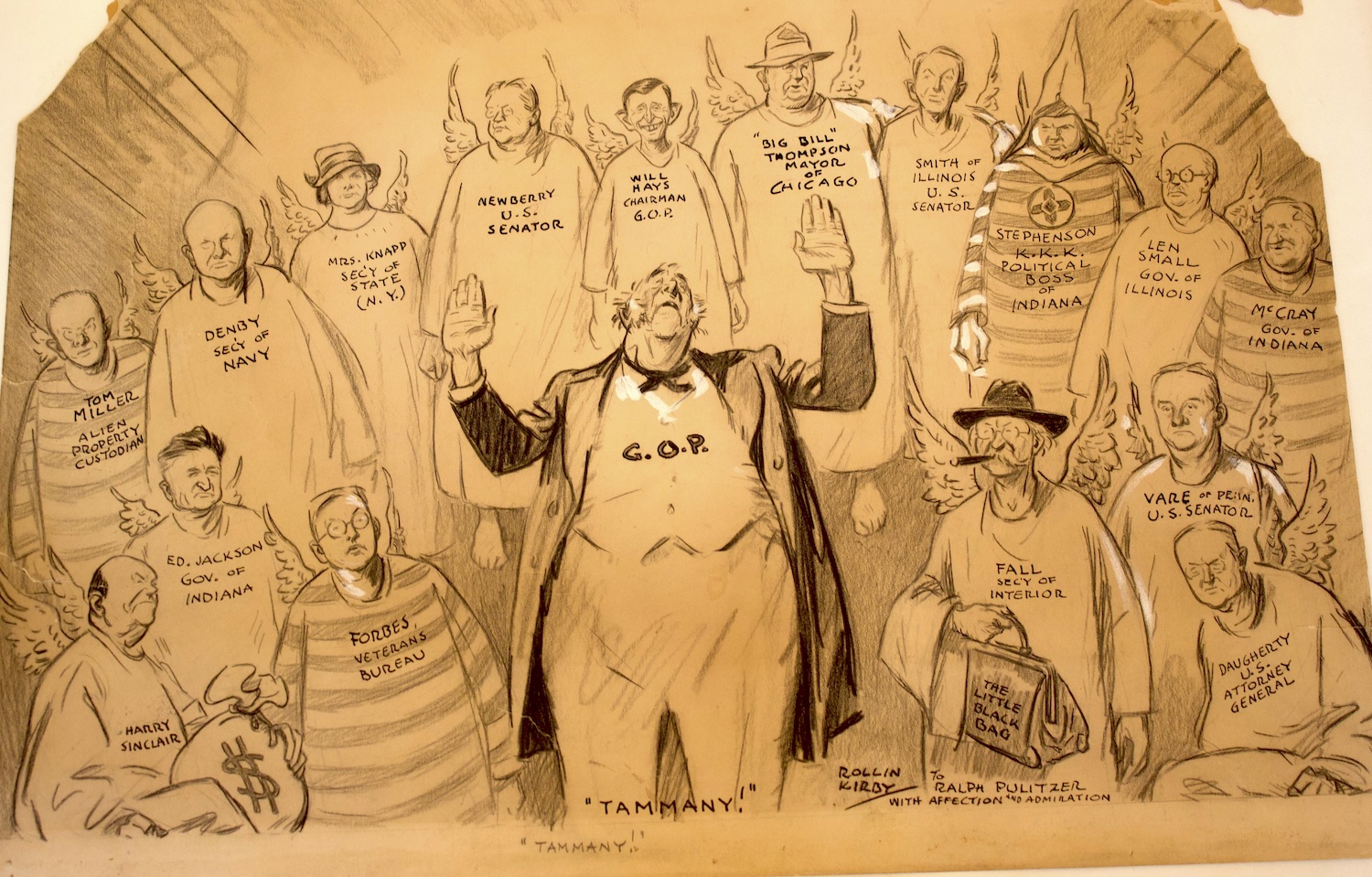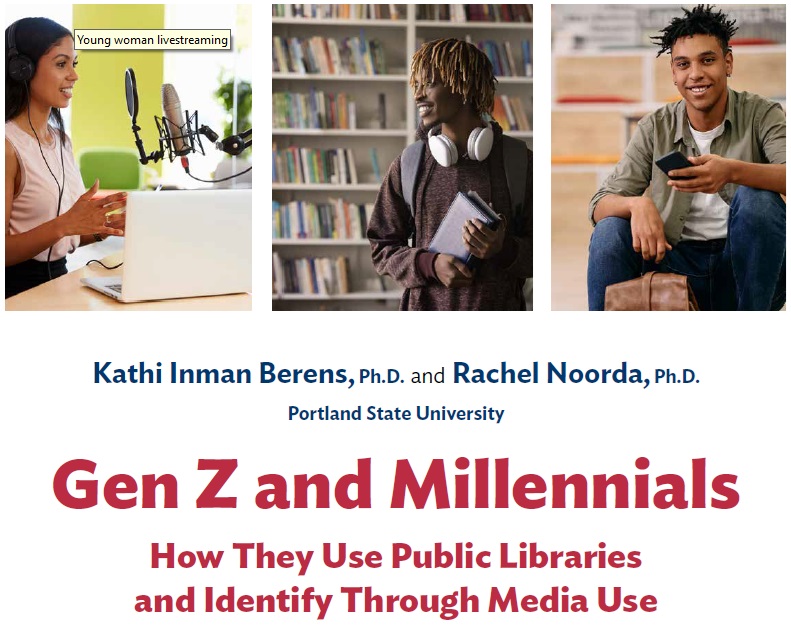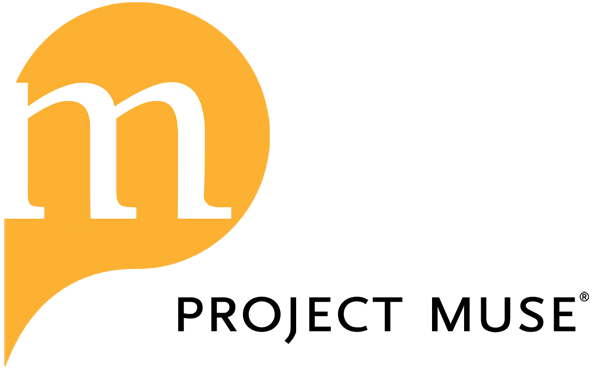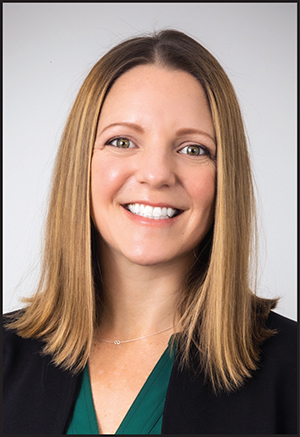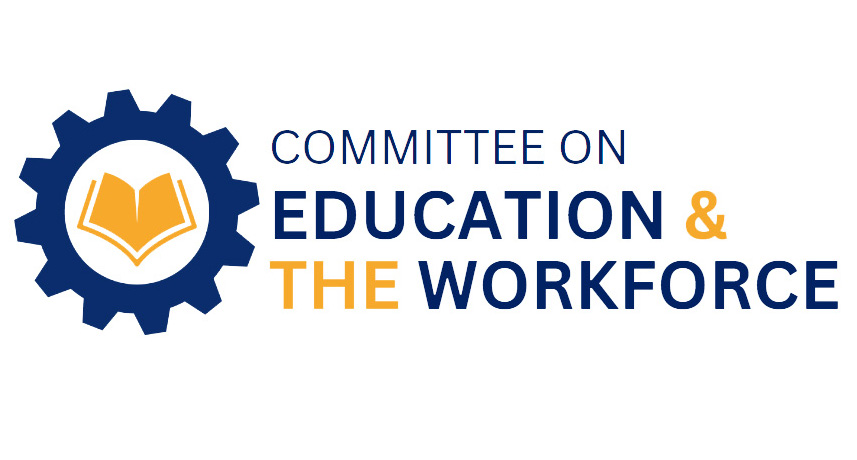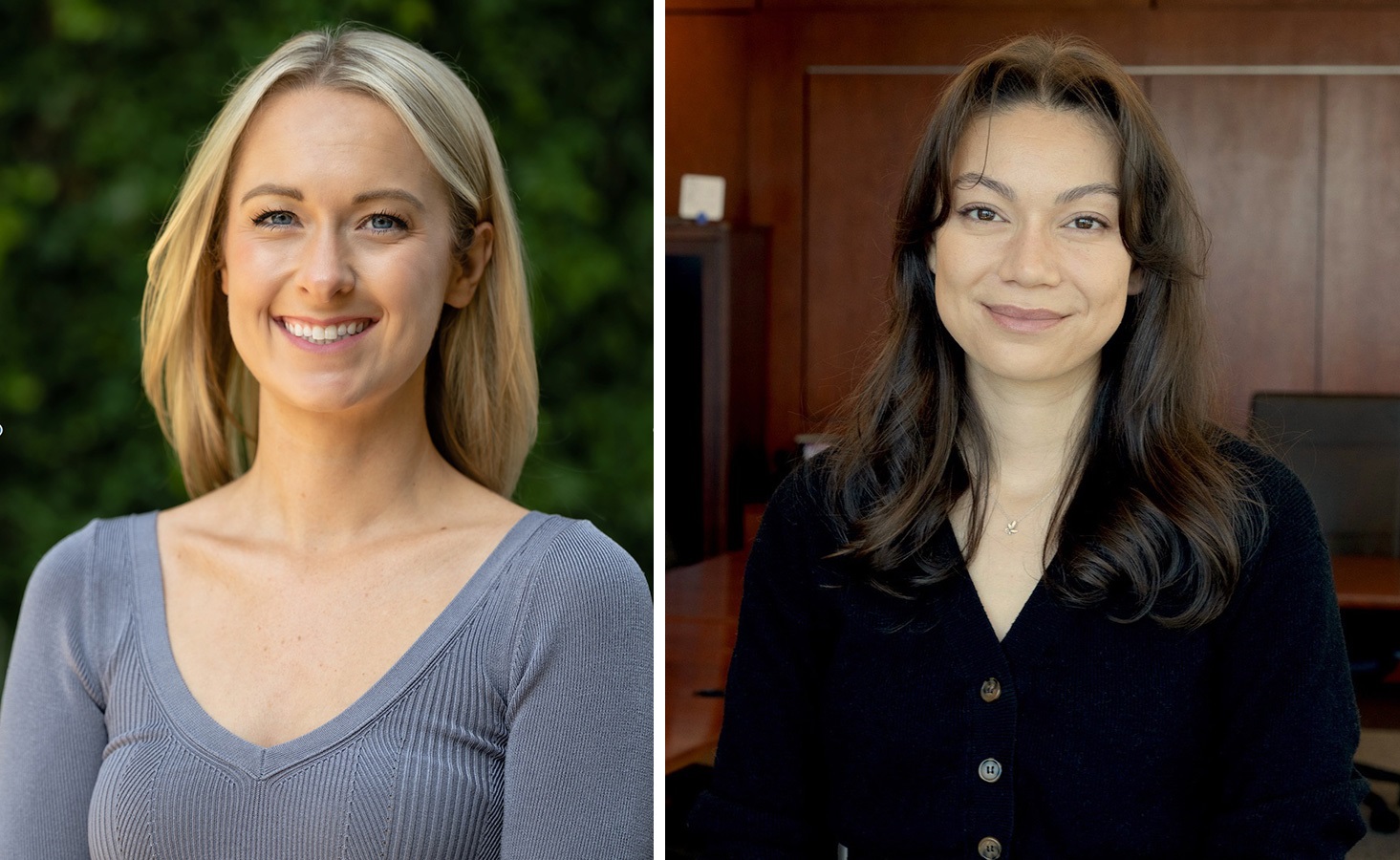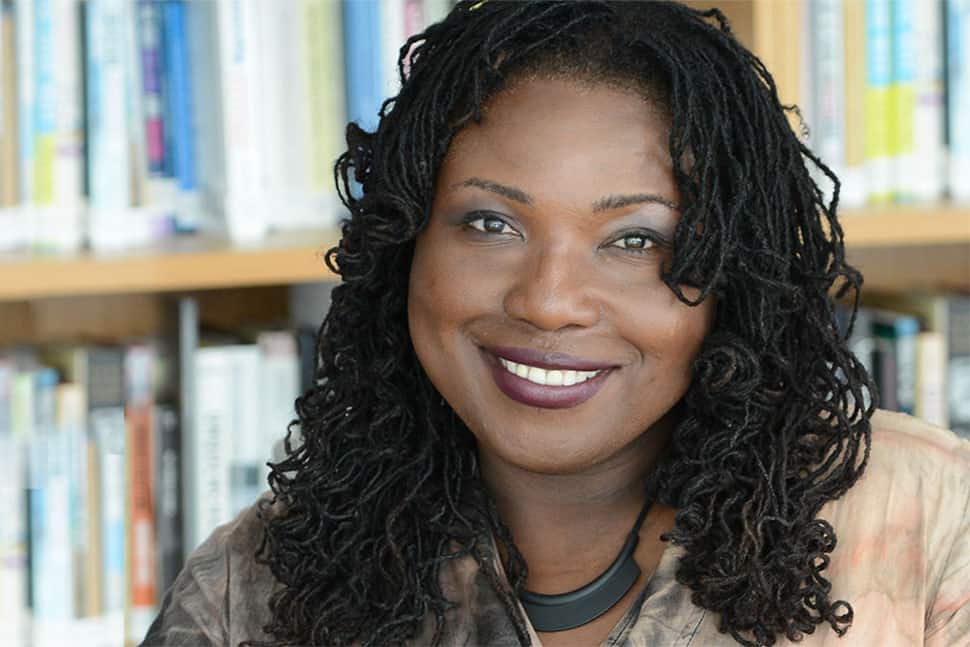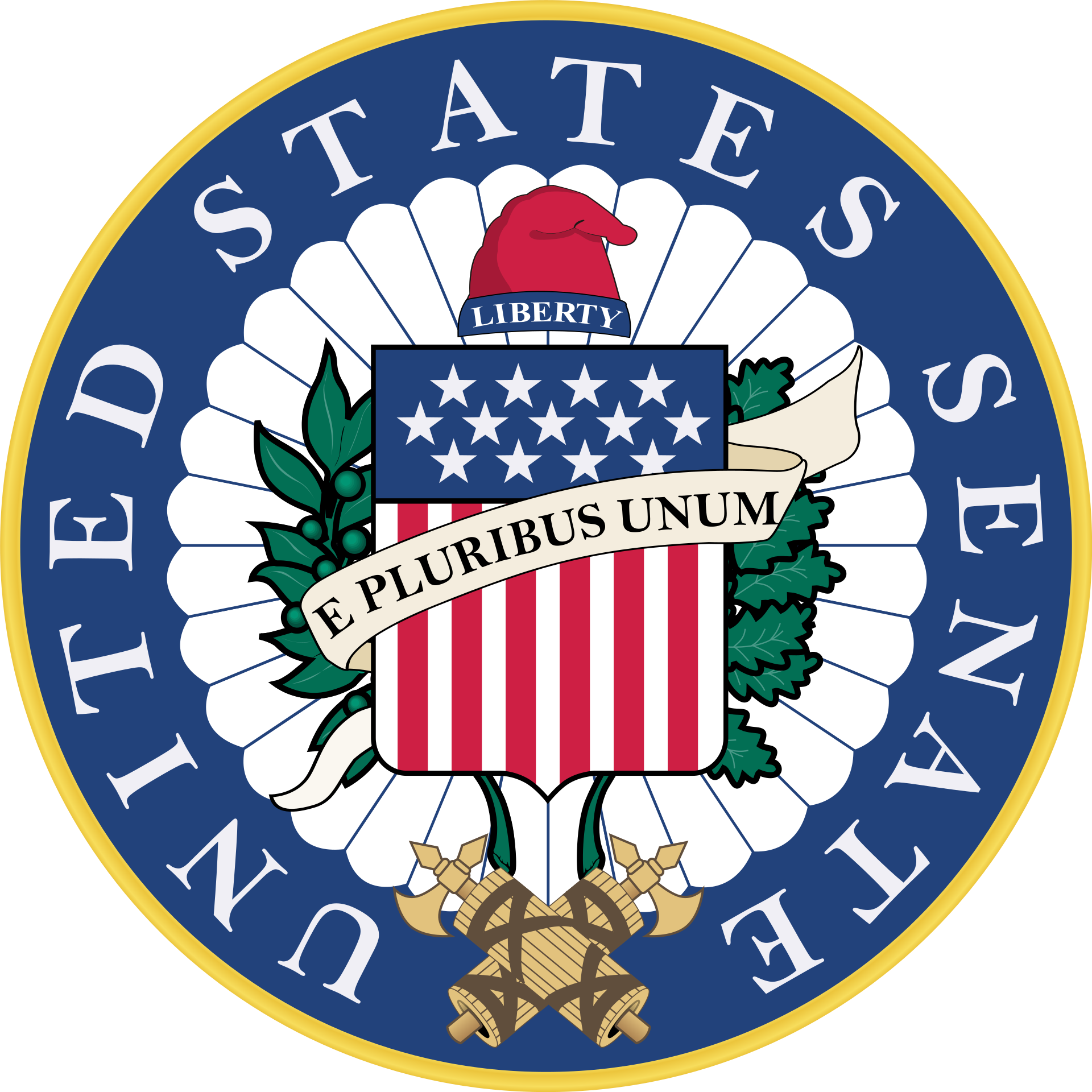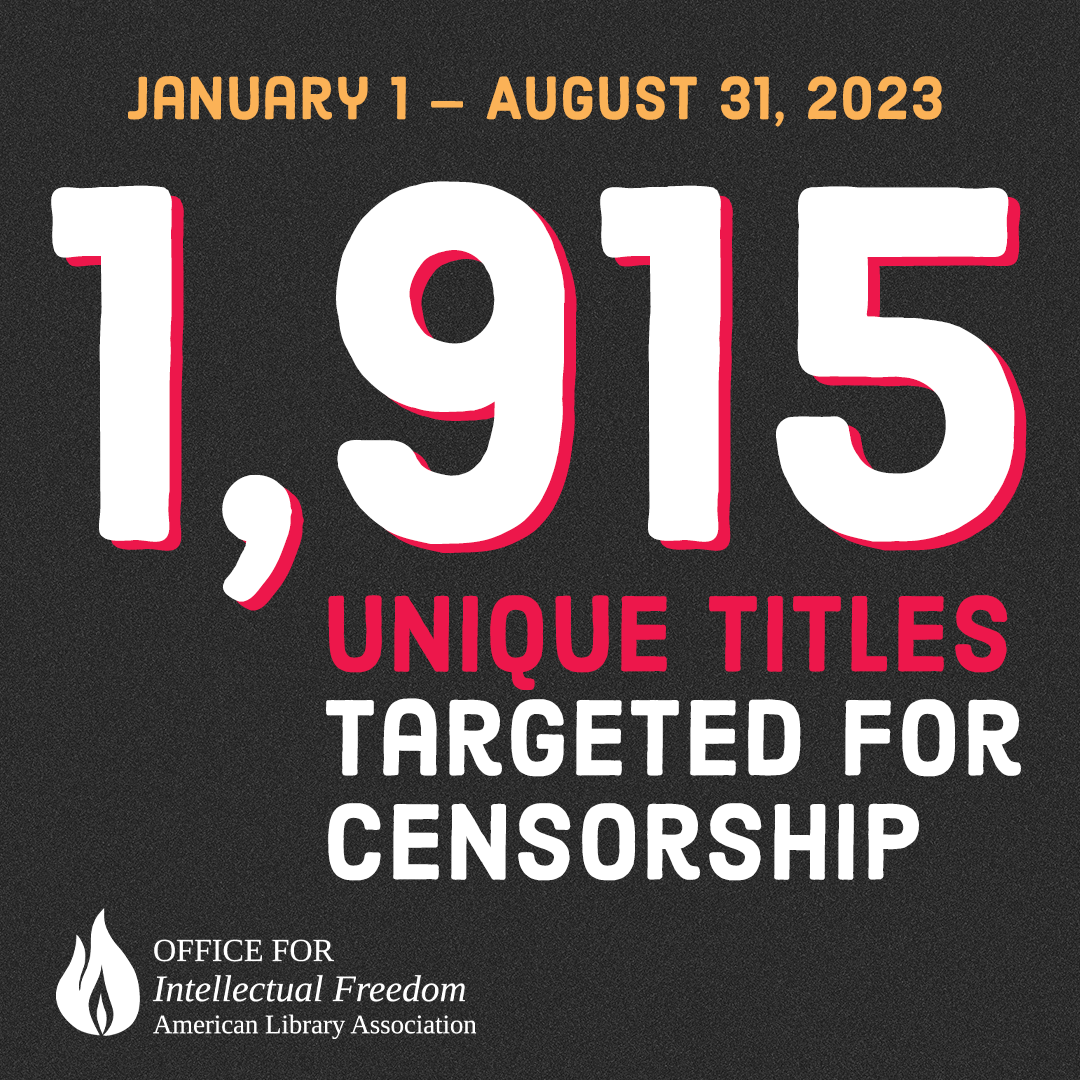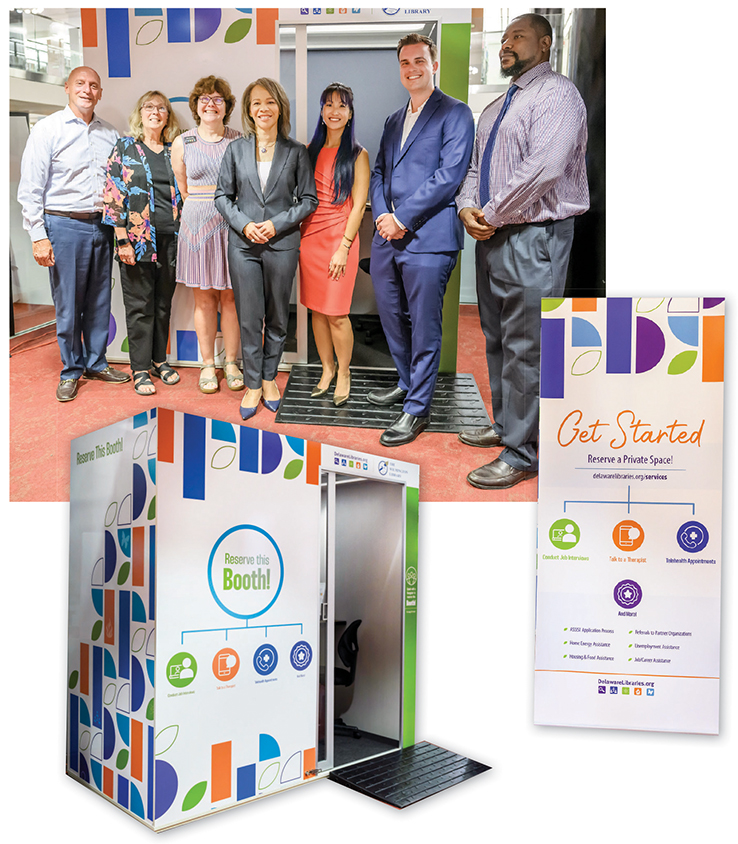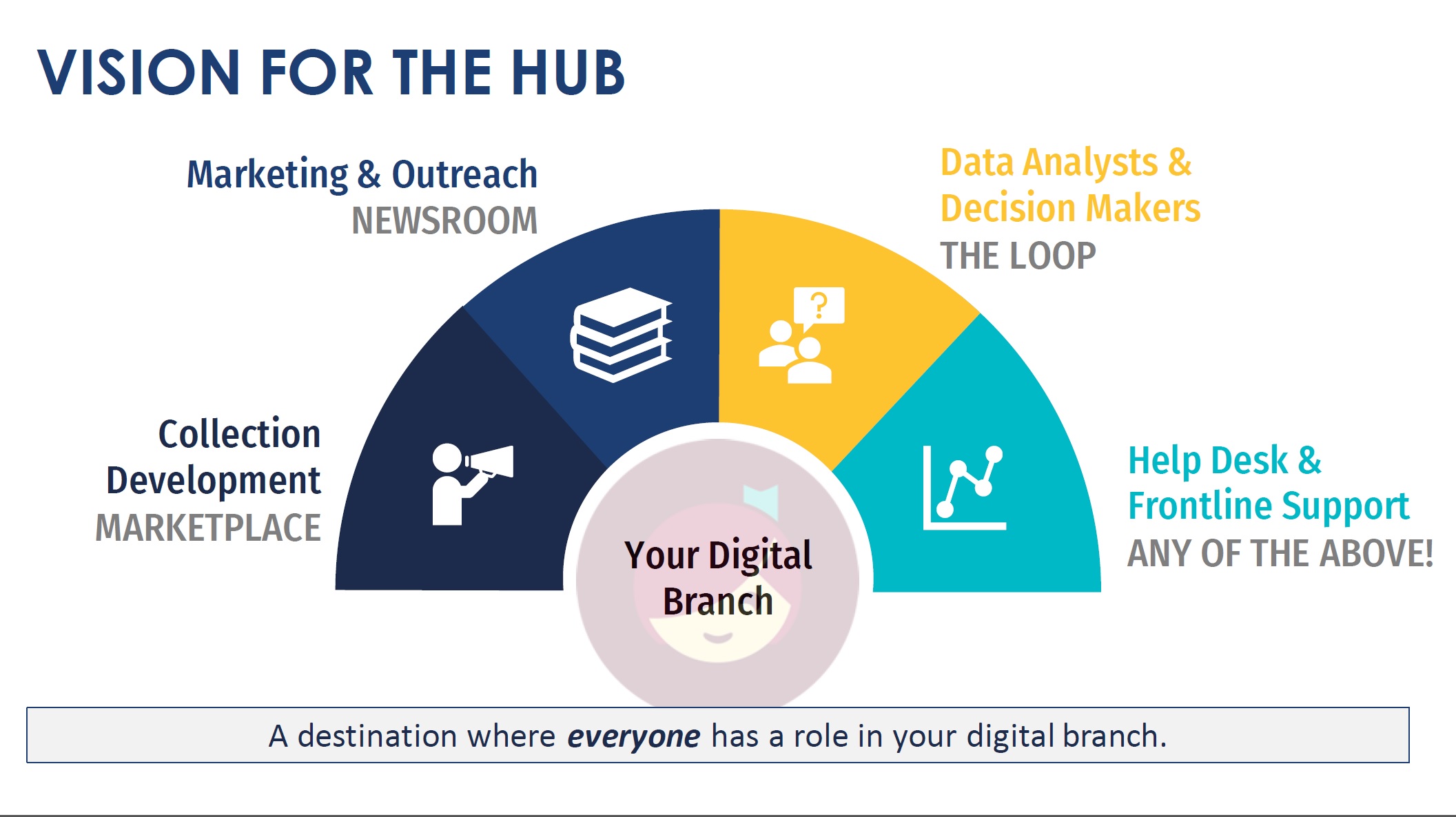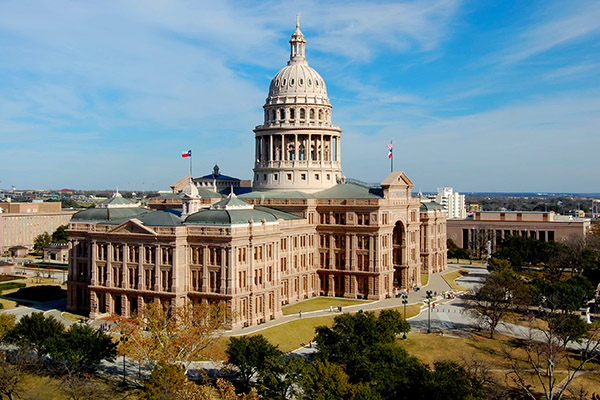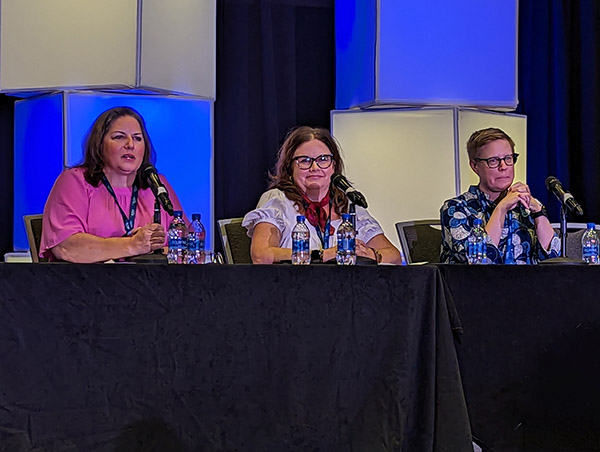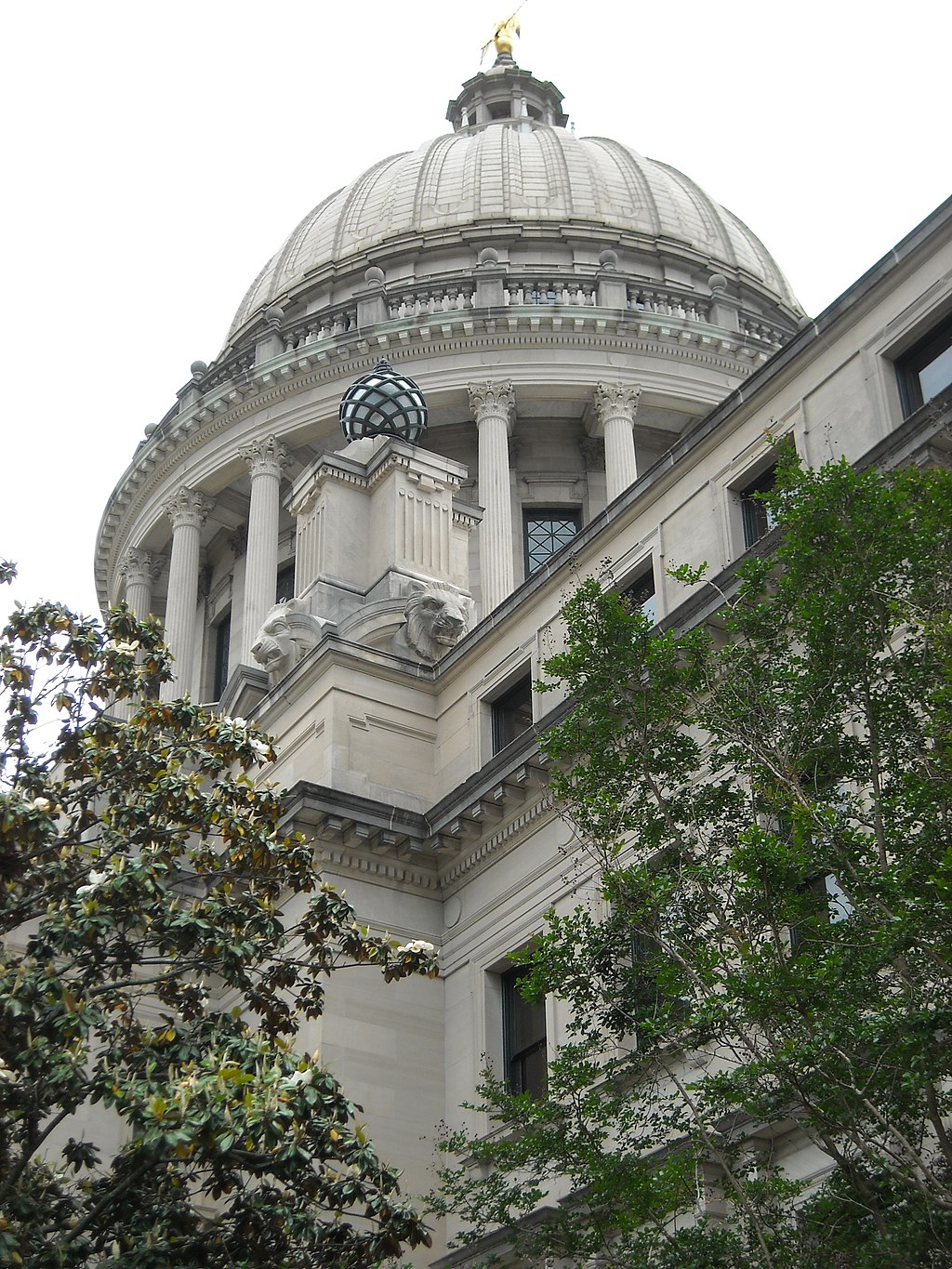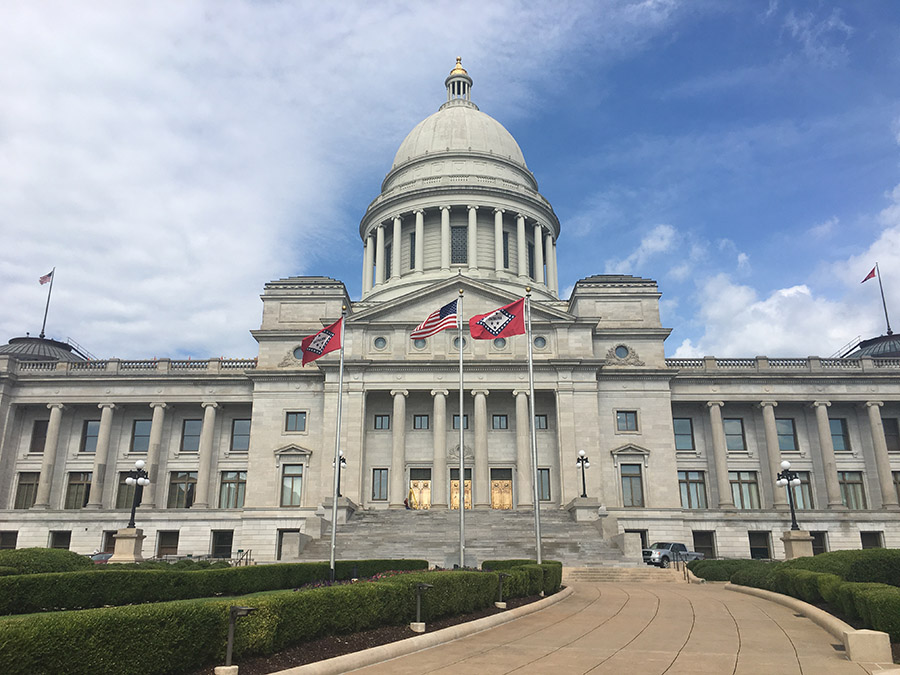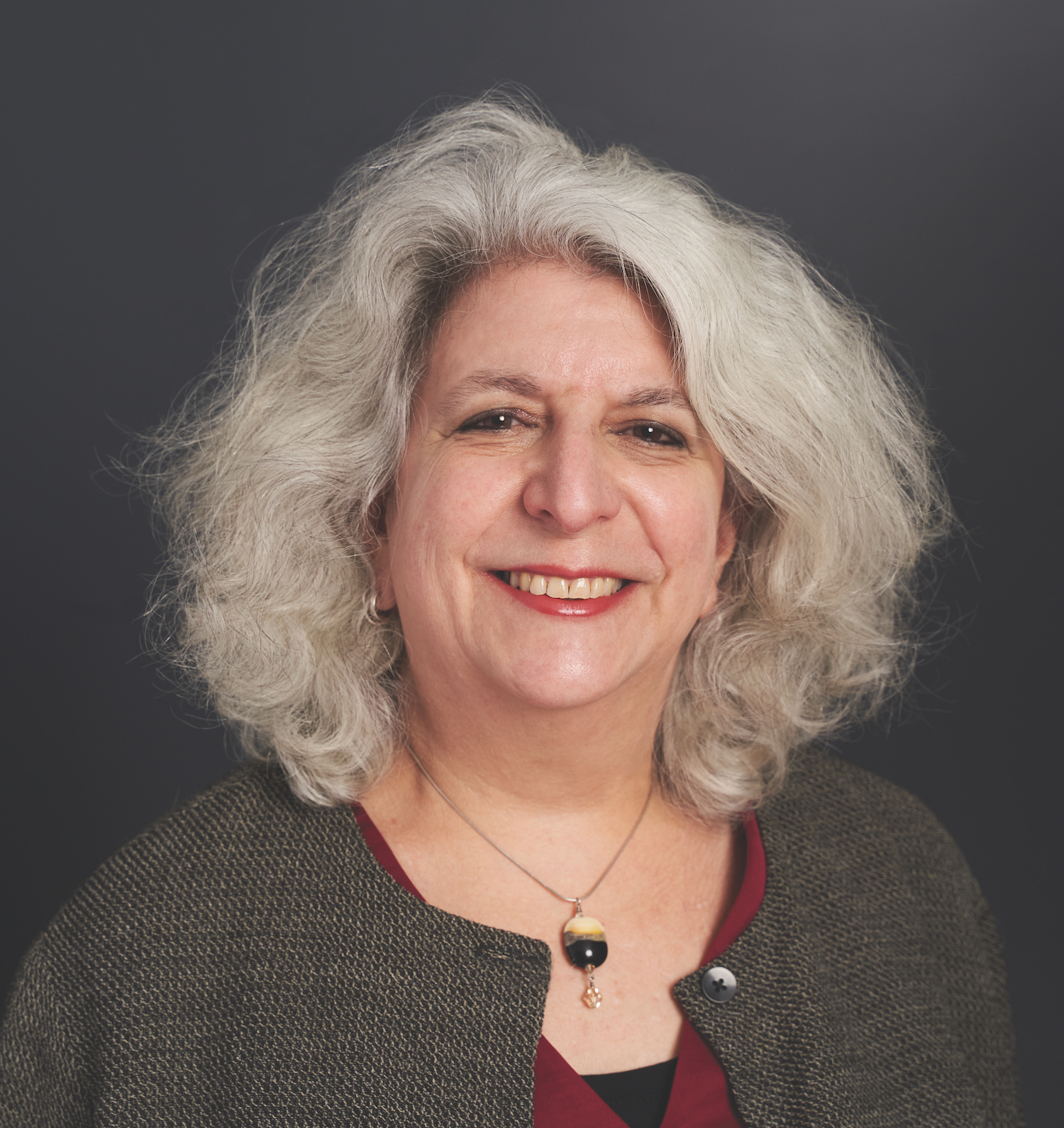Related
The U.S. Department of Commerce’s National Telecommunications and Information Administration (NTIA) on July 24 announced the availability of almost $1 billion in competitive grant funding for programs that “support efforts to achieve digital equity, promote digital inclusion activities, and spur greater adoption and meaningful use of broadband,” according to a notice of funding opportunity posted by the agency. Application materials are available on NTIA’s BroadbandUSA website, and must be submitted through the NTIA Grants Portal by September 23.
Many accessibility options are available to academic librarians and library workers, but the costs involved in training staff, reworking spaces, and purchasing tools can be limiting. It therefore falls on each library to best allocate their resources. In order to bring to light possible approaches, Osama Youssef Smadi, associate professor of special education at the Imam Muhammad bin Saud Islamic University in Saudi Arabia, surveyed students with disabilities. In the 2021–22 academic year, 160 students with physical, health, visual, and hearing disabilities registered with the university’s Special Needs Services Center.
Nevada’s libraries have long been an important part of the state’s workforce development programs, and in June, the state’s Board of Examiners approved a new librarian-in-residence program for two municipal systems—the North Las Vegas Library District and the Carson City Library—that will boost those efforts. For two years beginning last month, these librarians-in-residence will facilitate an Individual Career Mapping and Training Delivery Model program developed by the Nevada Governor’s Office of Economic Development with libraries throughout the state. The program includes innovative features such as hands-on virtual reality “field trips” and access to NCLab’s Career Readiness Assessment to build STEM skills.
The U.S. Federal Communications Commission (FCC) on July 18 voted to allow libraries and schools to use funding from the federal E-rate program to purchase Wi-Fi hotspots for lending. A component of FCC Chair Jessica Rosenworcel’s Learn Without Limits proposal—which was announced at the American Library Association’s (ALA) 2023 Annual Conference in Chicago—integration of hotspots into the program was aimed at responding to increasing connectivity needs and modernizing the E-rate program.
The American Library Association’s 2024 annual conference and exposition included many announcements from library vendors. Here’s a roundup of some of the news from this year’s show floor.
Keynoters and other speakers at American Library Association (ALA) conferences over the years have come to the conference from a wide range of disciplines, but their speeches all incorporate at least a few minutes attesting to the value of libraries in their lives—some landing more powerfully than others. At this year’s ALA Annual, held June 27–July 2 in San Diego, CA, a few speakers went beyond tales of being avid library users as children to tell stories that painted vivid pictures of what libraries, literacy, and unfettered access can mean to a kid who is looking to understand their world a little better.
Frankly, I should have seen it coming, but personal growth and change can be so subtle that you sometimes don’t realize you’re doing it until you’ve done it. When I literally squealed with delight upon discovering “Gardening with Monty Don” on the Hoopla BingePass at PLA 2024, it dawned on me that I was no longer someone who just liked plants...I’d become a gardener.
On Thursday, June 27, at the American Library Association Annual Conference and Exhibition in San Diego, CA, the Institute of Museum and Library Services announced the launch of its nationwide Information Literacy Initiative. The multipartner project provides a website, InformationLiteracy.gov, that offers a wide range of ready-to-use tools and resources for library and museum professionals—trusted educators—to engage their communities to find, understand, evaluate, and share accurate information.
A Minnesota bill with a section prohibiting book bans in public libraries, and libraries or media centers in public postsecondary institutions and schools, was signed into law by Gov. Tim Walz on May 17. Senate File 3567, an omnibus education reform bill—which also includes rulings on cell phone use in schools, student performance data, and student journalism, among other items—went into effect immediately.
June 24 marks two years since the U.S. Supreme Court overturned Roe v. Wade, making abortion a state’s issue. As of this writing, abortion is banned or severely restricted in 21 states. However, abortion is just one part of the larger landscape of Reproductive Justice and reproductive health. Whether you are providing reproductive health information, especially abortion information, in your collections, at the reference desk, or through programming, consult with a legal expert about your options. This may include what type of information you can provide and where in your collection it’s located.
The Seattle Public Library (SPL) is continuing to recover from a ransomware attack on Saturday, May 25. At press time, all branches were open, in-person and virtual programs and events were still being hosted, books and other physical materials were available for checkout, and online services provided by third-party vendors including ProQuest, Hoopla, Kanopy, and others were available to patrons. However, access to SPL’s ebooks and e-audiobooks, public computers, in-building Wi-Fi, printing and copying services, pickup lockers, museum pass services, interlibrary loan services, and some other online resources remained unavailable.
In recent years, the scholarly nonprofit Ithaka has prioritized advancing diversity, equity, and inclusion (DEI), both within the organization and in its outward-facing work. As that process evolved, Kate Wittenberg, managing director of Ithaka’s digital preservation service, Portico, saw that its archival conservation mission aligned in many ways with social justice ideals. In summer 2021, she began to identify underrepresented community collections that might be at risk without a preservation strategy, and in 2023 Portico launched a pilot project connecting the curators of those archives to its expertise and resources.
In a divided three-judge panel, the U.S. Court of Appeals for the Fifth Circuit issued a majority decision largely upholding a preliminary injunction ordering Llano County Library System to reshelve several titles that were previously removed.
In their shared hometown of Columbus, OH, at an event where readers celebrated their writing, Hanif Abdurraqib and Jacqueline Woodson sat with Library Journal for a conversation about libraries, book bans, and censorship.
As a book lover who works in the book industry, I have a job that aligns with my love for reading—and I get to work with librarians! Witnessing the sharp rise in attempts to ban books nationwide in recent years, I have become a vocal supporter of the First Amendment in ways that I didn’t expect when I began in publishing in 1988.
Frederick Douglass famously said, “Once you learn to read, you will be forever free.” This powerful and inspiring idea continues to resonate more than a century later, at a time when the essential services that libraries provide are more vital than ever.
Growing up in India as a young Sikh boy to aspiring middle-class parents, I understood their singular focus was to educate their children. Books were the windows that allowed me to gaze into a world far beyond my limited surroundings or imagination. The ancient tales of equality, courage, and righteousness from our scriptures, region, and history of valor ignited my imagination as I got older. At the same time, contemporary literature exposed me to the rich tapestry of cultures that coexisted in our vibrant nation.
Two and a half years ago, I was fired by the High Plains Library District (HPLD) in Weld County, CO, after I objected to cancelling programs for LGBTQIA+ teens and youth of color because they were “polarizing.”
Freedom to read issues are generating legislation—both library-adverse and library-protective—across the country.
This year’s standout selections from the American Library Association’s Government Documents Roundtable.
When the LJ team decided to focus our June issue on censorship, I couldn’t get the idea of exploring the personal nature of book bans out of my head. Yes, the broad societal impacts of affronts to intellectual freedom are significant—but what do they look like and mean for individual readers?
The U.S. Book Show, presented by Publishers Weekly—this year in collaboration with the Association of American Literary Agents—held its fourth annual event on May 22. The conference, which launched as a virtual symposium in 2021 to replace the defunct BookExpo America, offered a day of industry-centered conversation for publishing professionals, agents, editors, marketers, and authors.
JSTOR’s Path to Open pilot project and MIT Press’s Direct to Open program are both demonstrating that open access (OA) monographs are receiving significantly more use and are cited more often than non-open counterparts, according to a recent JSTOR webcast and an impact report released last week by MIT Press.
In celebration of National Bike Month (May in the United States, June in Canada), libraries are offering innovative ways to support bicycling all year round.
When Angel City Press (ACP) cofounders Paddy Calistro and Scott McAuley began thinking about retiring a few years ago, they knew they wanted to make sure ACP remained a local operation. Several years, a few lawyers, and much due diligence later, the donation of ACP to the Los Angeles Public Library has been approved by Los Angeles City Council, and ACP will now be known as Angel City Press at the Los Angeles Public Library.
Those outside our field may marvel at—or be disconcerted by—transformations they experience as new, seismic shifts from what they understand about libraries. We know the transformation is far from sudden, and far from over. Understanding this, the Institute of Museum and Library Services (IMLS) is using best practices and key research to better understand and equip libraries with the tools needed to address the future needs of the diverse communities they serve.
It has been a busy legislative session in the Louisiana House, with several bills poised to impact libraries and library workers halted at various points, while others have been approved and moved on to the Senate. As they proliferate, grassroots library advocacy organizations are stepping up to combat them.
Libraries, vendors, and library organizations have been busy with several recent artificial intelligence (AI) initiatives—check out LJ's roundup of the latest news from the field.
Fifty-seven percent of academic libraries report that the use of audiovisual (AV) sources such as news reels, recordings, performances, and films have increased over the past three years—with 21 percent describing significantly increased usage—while only 15 percent say that use of these resources have decreased, according to Library Journal’s recent AV Primary Sources Survey of Academic Libraries, sponsored by AM, that netted 220 responses from academic librarians in the United States and Canada. Thirteen percent of respondents said that college and university students now prefer AV primary source materials, compared with 18 percent who prefer print and other archival primary source materials.
Dr. Aisha Johnson’s research, publication, and consulting on African American librarianship dates to her undergraduate years at Florida State, where—after growing up in a diverse area of south Florida—she found herself one of the few Black political science students.
Becoming a library trustee wasn’t on Becky Keane’s radar until a neighbor gave her an earful about the shortcomings of her local board. Intrigued, Keane sought—and secured—appointment to the library board in fall 2019.
As the adult services librarian at the Curtis Memorial Library (CML) in Brunswick, ME, Hazel Onsrud is a passionate advocate for sustainable living, developing programming focused on sustainability to help her community discover how best to improve their environmental impacts.
When Rebecca Wolfe noticed groups of adults with intellectual or developmental disabilities (IDD) come to her library, she saw an opportunity to make their library time more meaningful and engaging. She founded the monthly All Abilities Club, which offers crafts, games, literacy activities, music, and guest speakers to adults with IDD and caregivers.
After being named library director in 2020, Tyler Hahn dove into calling attention to the rural digital divide and advocating for the crucial role of rural librarians on the radio, in news outlets, and to state and federal elected officials.
Sara Ring's work with the 23 Linked Data Things project grew out of conversations with colleagues at a conference a few years ago, where they discussed the lack of resources for librarians to keep up to date on technology. But it wasn’t until she and other coworkers formed a Wikidata Book Club that the discussion extended into how to help people—including themselves—learn about linked data.
Tara Somersall’s creativity serving children of all ages has made Yonkers Public Library a community leader in meeting kids’ needs and preparing them for a lifetime of reading.
Thanks to Nardia Cumberbatch’s leadership, Valencia College in Orlando, FL, was the first library in Florida (and second academic library overall) to complete the Sustainable Library Certification Program.
Jenay Dougherty aims to increase representation of Pacific Islanders in leadership roles, both within librarianship and in everyday life.
Dr. Tameka Bradley Hobbs, Regional Manager for Broward County Libraries’ African American Research Library and Cultural Center (AARLCC), recognizes the significance of historical awareness, particularly for the Black community. “As access to accurate Black history and diverse literature continues to be challenged in our state, AARLCC will continue to be a refuge to those seeking intellectual freedom and the freedom to read,” Hobbs says.
A pair of bills making their way through the Connecticut state legislature both aim to set parameters on the licensing terms and contracts for ebooks and e-audiobooks that libraries will be able to accept from publishers and aggregators. The bills are the legislature’s most recent attempt to make publishers offer ebooks and e-audiobooks to the state’s libraries on more favorable terms.
Shavonn Matsuda, head librarian at the University of Hawai‘i Maui College Library, was named a 2023 Library Journal Mover & Shaker for her efforts to incorporate traditional Hawaiian languages and cultures into the academic library and cataloging system to guide Hawaiian scholars and community members more efficiently and robustly. LJ recently followed up with her to learn more about her work.
Many librarians lauded the development of Open Access (OA) publishing models, which offered, at least initially, to help solve the problem of an unsustainable and inequitable scholarly communications ecosystem while simultaneously addressing a growing interest in diversity, equity, and inclusion (DEI). In the past year, the idea that, with appropriate guardrails, Artificial Intelligence (AI) can also play a role in changing scholarly communications has risen to the fore. But can OA, DEI, and AI ever live up to their promise of an affordable, equitable and sustainable publishing ecosystem?
The Greater Columbus Convention Center’s exhibit halls were full of activity during this month’s Public Library Association (PLA) 2024 conference in Ohio. Here are a few of the topics LJ had the opportunity to discuss in person at the show, as well as other vendor announcements within recent weeks.
Michael Reynolds, editor-in-chief of Europa Editions, saw libraries and publishers as star-crossed lovers that have been kept far apart for as long as possible, finally meeting in one room in Columbus, OH, at IndieLib, a conference hosted by the Independent Publishers Caucus and the Digital Public Library of America on April 2.
Library entertainment platforms offering movies and TV shows gain on commercial streaming services as consumers balk at subscription costs. With “subscription fatigue” on the rise, libraries are seeing a growing popularity in streaming services—and deciding how best to provide them.
It’s April, which means that in addition to celebrating spring’s arrival, I’ll be joining libraries across the nation in celebrating National Library Week.
The Institute of Museum and Library Services (IMLS) has announced the appointment of Deputy Director for Library Services Cyndee Landrum as Acting Director, effective March 21, following the conclusion of former Director Crosby Kemper’s four-year term. Landrum will lead the agency until a new director is nominated by the President and confirmed by the U.S. Senate. LJ caught up with her to hear her take on her past four and a half years at the agency, and what her new role will entail.
Baker & Taylor and Library Ideas have announced an exclusive partnership that will see Baker & Taylor distributing Library Ideas’ VOX and IR [Immersive Reality] Books to libraries and schools. VOX Books are hardcover print fiction, nonfiction, and picture books with permanently attached VOX Readers that transform the titles into all-in-one read-along audiobooks. IR Books are hardcover nonfiction print books featuring virtual reality and augmented reality elements.
On Saturday, March 16, a standing-room-only crowd—especially notable for one of the first warm days of spring and the day of New York City’s St. Patrick’s Day parade—packed into Queens Public Library's (QPL) Queensbridge Tech Lab, a makerspace in the Long Island City neighborhood of Queens. Drawing them to the space was the Queens Name Explorer Edit-a-Thon, hosted by QPL’s Memory Project, Wikimedia NYC, OpenStreetMap US, and Urban Archive.
Libraries are incorporating collaboration, creativity, and a steadfast commitment to create accessible and inclusive spaces. Also, LJ looks at EBSCO's academic ebook accessibility findings.
On March 14, the American Library Association (ALA) released its most recent book challenge data for 2023. According to ALA’s Office of Intellectual Freedom (OIF), which tracks challenges and acts of censorship in public schools and libraries across the United States, the number of targeted titles rose 65 percent from 2022—once again, the highest levels ever documented by ALA. In public libraries, numbers increased 92 percent over the previous year; school libraries saw an 11 percent increase. Challenged titles featuring the voices and lived experiences of LGBTQIA+ and BIPOC individuals made up 47 percent of those targeted in censorship attempts.
In the past two years of semi-occupation and warfare, public libraries in Ukraine have established themselves as actors in state defense. Among the first institutions to reopen after the war began, libraries continue to operate despite a shortage of funds and staff, and in the areas close to the front line, continuing shelling.
UPDATE: The ALA-SLI National Climate Action Strategy Working Group will hold an open forum to introduce a draft Climate Action Strategy for Libraries to ALA members, and to solicit feedback from the field, on Thursday, March 14. All library workers and trustees are invited.
The American Library Association and the Sustainable Libraries Initiative have teamed up to create a National Climate Action Strategy for Libraries to be released later this year. Both organizations have been working to raise awareness in the profession for the need to act with urgency to create communities of practice that can help library workers understand the issue and that can provide the practical approaches to manage the predicted impacts and systemic nature of climate change.
Ry Moran, associate university librarian for reconciliation at the University of Victoria, British Columbia, was named a 2023 Library Journal Mover & Shaker for his work bringing the university’s reconciliation department to fruition and developing a podcast called Taapwaywin, which means “truth” or “speaking truthfully” in Michif, a language of the Métis people. LJ recently touched base with Moran to learn more about his work with truth and reconciliation, and how the podcast is going.
To help break down the relevant library issues in this election year, LJ convened a roundtable of experts including John Chrastka of EveryLibrary; Nick Grove of Meridian Library District, ID; Jason Kucsma of Toledo Lucas County Public Library, OH; and Representative Ashley Hudson from the Arkansas House of Representatives. They covered everything from voter engagement strategies for libraries on the ballot to book ban advocacy in challenging districts to engaging the electorate in an important presidential election year.
In January 2020, Crosby Kemper III stepped into a four-year term as director of the Institute of Museum and Library Services (IMLS). At the time, one of the main concerns at IMLS was then-President Donald Trump’s repeated efforts to zero out the agency’s budget; less than two months later, libraries across the country would shut down for COVID-19 safety precautions, and, soon after they began to reopen, a surge of intellectual freedom challenges would escalate. Kemper’s term ends on March 8; LJ caught up with him to hear his take on the past four years and find out what’s next.
West Virginia legislators recently advanced a bill that would remove criminal liability protections for public library, museum, or school employees accused of displaying “obscene matter to a minor." Under House Bill 4654, which passed the West Virginia House of Delegates on February 16, in an 85–12 vote mostly along party lines, any adult who knowingly and intentionally displays obscene matter to a minor could be charged with a felony, fined up to $25,000, and face up to five years in prison if convicted.
Voting for the American Library Association (ALA) 2025–26 presidential campaign opens March 11, and ALA members in good standing can cast their ballots through April 3. LJ invited candidates Sam Helmick, community and access services coordinator at Iowa City Public Library; and Ray Pun, academic and research librarian at the Alder Graduate School of Education, Redwood City, CA, to weigh in on some key issues.
Unite Against Book Bans—the national initiative launched by the American Library Association (ALA) in 2022 to help readers, libraries, publishers, and other institutions in the fight against censorship—this week launched a free collection of book résumés “to support librarians, educators, parents, students, and other community advocates in their efforts to keep frequently challenged books on shelves.” Separately, OverDrive subsidiary TeachingBooks last month announced the launch of a new Book Résumés Toolkit at ALA’s LibLearnX conference in Baltimore.
A Georgia senate bill aimed at detaching the state from the American Library Association (ALA) could send ripples throughout Georgia’s public library system and the state university that trains librarians. Senate Bill 390 would put a firewall between Georgia libraries and ALA. Effective on July 1, 2025 if enacted, it would remove ALA as an accrediting organization within the state and would ban ALA and its affiliates from receiving taxpayer—and even privately donated—funds for the association’s materials, services, or operations.
On January 30, in response to pressure from Gov. Kay Ivey, the Alabama Public Library Service—the agency that advises and administers funds to the state’s 220 public libraries—announced its official decision not to renew its membership with the American Library Association (ALA). But advocates are urged to look beyond the controversy over ALA to the larger issues in play, notably the growing influence that the state’s elected officials have on library freedoms.
On January 22, the Library of Congress (LOC) announced the launch of the COVID-19 Archive Activation website, an online tool created in collaboration with national oral history nonprofit StoryCorps, which will allow members of the public to submit audio accounts of their pandemic experience. Anyone wishing to share their story or interview others can take part. These oral histories will become part of LOC’s American Folklife Center collections and be made accessible at archive.StoryCorps.org.
I’ve been worried about library visits for a while now, but my concerns have largely focused on the effect fewer visits will have on the future of libraries. What I learned is that I had it backwards. Yes, there’s a danger to libraries when fewer people use them; but the bigger threat in decreased library use is to the community itself.
Artificial intelligence (AI) was a hot topic at this year’s American Library Association LibLearnX conference in Baltimore, January 19–22, with multiple presentations, panels, and workshops covering the technology and its impact on libraries and the people they serve, touching on both AI’s potential and its current flaws.
The Collaborative Institute for Rural Communities Librarianship (CIRCL), Gigabit Libraries Network, and 14 state libraries announce the launch of the State Libraries and AI Technologies (SLAAIT) Working Group,
Willa Liburd Tavernier, research impact and open scholarship librarian at the Herman B. Wells Library at Indiana University–Bloomington, was named a 2023 Library Journal Mover & Shaker for her work facilitating open educational resources and the development of open pedagogy projects. We recently spoke with Tavernier to find out more about these projects and what’s next for her.
The Toronto Public Library (TPL) is in the final stages of recovering from a ransomware attack on October 28, 2023 that shut down the library’s internal network, website, and public computers. Although TPL managed to keep all of its 100 branches open and host programs throughout the ordeal, patrons were unable to access their library accounts online or use the library’s computers for more than two months.
A project to record the memories of residents in King County, WA—particularly Asian Americans displaced during World War II—is set to begin soon. King County Library System was awarded an $800,000 Mellon Foundation grant that will be used to hire a staffer to oversee a project that will create memory labs at two different locations.
2023 was a breakout year for generative artificial intelligence, and librarians are in a position to help patrons work with this technology.
After a year spent enduring book challenges and politically charged barbs, no one can blame the profession for entering 2024 shell-shocked and exhausted. Yet, in the face of this trauma, we still find librarians and library workers who are resolute in their commitment to library values. Tired, yes, but smart about the ways in which they can provide important library service within the political context of their unique community and situation.
If you're seeing this, chances are you’re someone who identifies as a reader. And, as a reader, you may be shocked to discover that there are many American adults who just aren’t.
On November 15, the American Library Association (ALA) announced that it had selected Leslie Burger as interim executive director, effective immediately. She succeeds Tracie D. Hall, who resigned on October 6. LJ caught up with Burger as she began settling into her new role to talk about the experience she brings and her plans going forward.
When Patty Hector, former director of the Saline County Library in Benton, AR, was fired on October 9, it didn’t come as a surprise. A decision to shift control of the library from its board to county officials, driven primarily by Hector’s refusal to comply with a resolution to move certain books containing content about racism, LGBTQIA+ subjects, and sexual activity from areas where anyone under the age of 18 could access them, was proposed in April and passed in August. What may surprise some, however, is that Hector has thrown her hat in the ring for a spot on the Saline County Quorum Court, the same body that had her terminated.
It’s easy, as librarian-educators, to be overwhelmed and intimidated by the pace of technological change, as well as dismissive of the need for educating students and patrons about privacy on the assumption that they have fully embraced these technologies and likely don’t care. But the reality is that students do care about privacy, and want to be able to make informed, intentional choices about how they are known by and accessible to others.
From the first known caricature of Abraham Lincoln to a Pulitzer Prize–winning cartoon satirizing the Tammany Hall political machine, the Michael and Susan Kahn Political Cartoon Collection, now at UCLA, contains thousands of individual images, periodicals, books, and ephemera dating back to the late 17th century.
People 40 and younger are using public libraries, often at higher rates compared with older generations even when they don’t define themselves as readers, according to Gen Z and Millennials: How They Use Public Libraries and Identify Through Media Use, a survey and report by Kathi Inman Berens and Rachel Noorda, both from Portland State University.
Recent announcements from Project MUSE, Clarivate, and other vendors, as well as Cornell's arXiv, the Bruce Springsteen Archives and Center for American Music at Monmouth University, and more.
Susan Ivey was named one of Library Journal’s 2023 Movers & Shakers for her work making data resources more accessible for researchers at North Carolina State University in Raleigh. We recently reached out to learn more about what that role requires from her and what benefits it provides the university’s researchers.
The Internet Archive (IA) in September submitted an appeal to the summary judgment against them in the Hachette v. Internet Archive copyright case, and IA is now asking the Second Court of Appeals for a deadline of December 15 for submitting its opening brief, IA Senior Policy Counsel Lila Bailey announced during the organization’s Virtual Library Leaders Forum earlier this month.
A hearing held October 19 by the House Early Childhood, Elementary, and Secondary Education Subcommittee on graphic content in school libraries drew testimony from both witnesses concerned about the suppression of material and others troubled by the content they see in school libraries.
With the sharp uptick in challenges to books with LGBTQIA+ and BIPOC subjects and authors, this year’s Banned Books Week (October 1–7) resonates strongly with library staff and users alike. Public, academic, and school libraries from Los Angeles to Maine have launched local anticensorship campaigns—and some, like Brooklyn Public Library's Books Unbanned and New York Public Library's Books for All, are providing access to removed or restricted books nationally. One such initiative, the Digital Public Library of America’s (DPLA) Banned Book Club, has been providing challenged books to readers across the country, via the free Palace e-reader app, since its launch in July.
In 2022, librarians at Utah State University collected 58 survey responses and conducted 10 interviews with high school librarians and teachers in Utah to better understand information literacy instruction happening within our high schools. Along with investigating the skills being prioritized, our study looked at how teachers and librarians are collaborating as fellow educators.
The American Library Association (ALA) announced on October 5 that Tracie D. Hall will be leaving her role as the association’s executive director, effective October 6. Hall—a librarian, author, and advocate, among other roles—was appointed as ALA’s first female African American executive director in January 2020 after a nationwide search, succeeding Mary W. Ghikas, and stepped into the position on February 24—only days before libraries across the country shut their doors to accommodate COVID-19 safety measures.
We already recognize the profound impact of pandemic learning loss: student performance in math and reading has hit its lowest levels in decades. What’s more, students demonstrated slower than average growth in the last school year, meaning learning gaps aren’t closing—in some cases, they’re growing. That’s where libraries can step in.
KKR's potential acquisition of Simon & Schuster will undergo scrutiny from the Department of Justice before proceeding and could raise questions about how Simon & Schuster will do business with OverDrive in the future.
New York Public Library's new "Books for All" campaign launches during Banned Books Week 2023 and seeks to engage teens and young adults.
Students learn invaluable skills they can apply in a variety of settings and applications. Across the nation, there has been renewed debate over the value of humanities degree programs as campus leaders look to overcome steep budget challenges.
The ongoing debate over the freedom to read moved to the chambers of the U.S. Senate Judiciary Committee, which held a hearing September 12 entitled “Book Bans: How Censorship Limits Liberty and Literature.”
New American Library Association (ALA) President Emily Drabinski has her eye on ALA’s projects and goals, as well as the association’s ongoing work standing up for its organizational values. LJ caught up with her in between stops on her tour of U.S. libraries to hear more about what she has planned.
The American Library Association (ALA) has released its preliminary data on the attempted censorship and restriction of access to books and other materials in public, academic, and K–12 libraries during the first eight months of 2023. Between January 1 and August 31, ALA’s Office for Intellectual Freedom documented 695 challenges to library materials to 1,915 unique titles.
Library telehealth programs launched in response to the COVID-19 pandemic are beginning to evolve and adapt to changing times.
OverDrive will soon debut several new features including OverDrive Hub, a portal designed to enable staff in a variety of roles to work with their library’s digital branch, the company announced during the “Forward Together: The Future of Your Digital Branch with the OverDrive Hub and Libby” panel at OverDrive’s biennial Digipalooza conference in August.
At a time when collaboration is endangered by conflict and critical thinking is often jettisoned in favor of the latest “hot take,” I can’t help but feel like library professionals are the leaders we need to secure a brighter future.
Judge Alan D. Albright indicates he will issue a preliminary injunction blocking enforcement of HB 900, the state's controversial book rating law.
All eyes are on Texas as HB 900, the state’s controversial new book rating law, is slated to take effect September 1, 2023. Signed by Governor Greg Abbott on June 12, the legislation aims to prevent the sale of books deemed “sexually explicit” or “sexually relevant” to school districts by requiring book publishers and vendors to rate individual titles based on content.
Book banning groups are becoming more organized, but libraries are evolving new tactics to oppose censorship efforts, panelists said during the “#UniteAgainstBookBans: Advocate for your community’s right to read” panel with Emily Drabinski, Sara Gold, and Lisa Varga, with moderator Brian Potash, at OverDrive’s biennial Digipalooza conference in Cleveland August 9–11.
House Bill 1315, signed by the governor, regulates “pornographic media exposure” to K–12-aged children and “digital and online resources” provided by vendors to those children. The bill requires a vendor or provider of digital or online resources or databases to have safety policies and technology protection measures that prohibit and prevent a person from sending, receiving, viewing, or downloading content that officials consider “obscene.”
Most libraries don’t own their own ebooks. This shouldn’t come as a surprise to LJ readers, yet it’s a statement that continues to confound elected officials and administrators who get an astounding amount of say in how much money public and academic libraries are allotted. This is one of the reasons I, along with my coauthors Sarah Lamdan, Michael Weinberg, and Jason Schultz at the Engelberg Center on Innovation Law & Policy at New York University Law, published our recent report, The Anti-Ownership Ebook Economy: How Publishers and Platforms Have Reshaped the Way We Read in the Digital Age.
UPDATE: On Saturday, July 29, U.S. District Judge Timothy L. Brooks temporarily blocked two sections of Act 372, citing concerns that they were too vague and could potentially violate the First and 14th amendments. The preliminary injunction prevented the two contested sections from taking effect on August 1, as scheduled; the court will continue to investigate their constitutionality. Brooks’s 49-page order opened with a quote from Ray Bradbury’s novel Fahrenheit 451: “There is more than one way to burn a book. And the world is full of people running about with lit matches.”
The overarching concern at ALA Annual in Chicago this summer was the proliferation of censorship attempts and book challenges at libraries of all kinds, in all states.
ALREADY A SUBSCRIBER? LOG IN
We are currently offering this content for free. Sign up now to activate your personal profile, where you can save articles for future viewing


